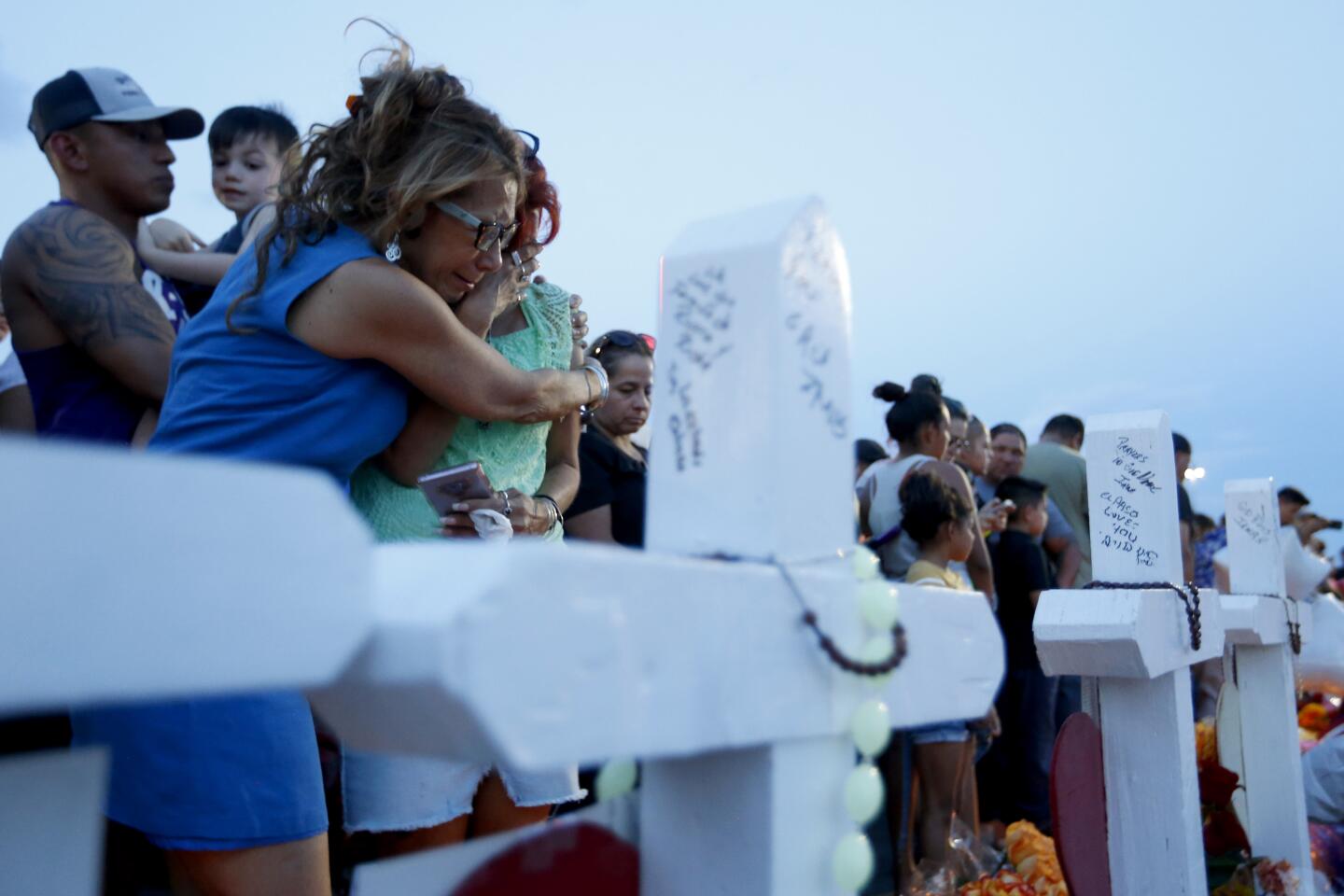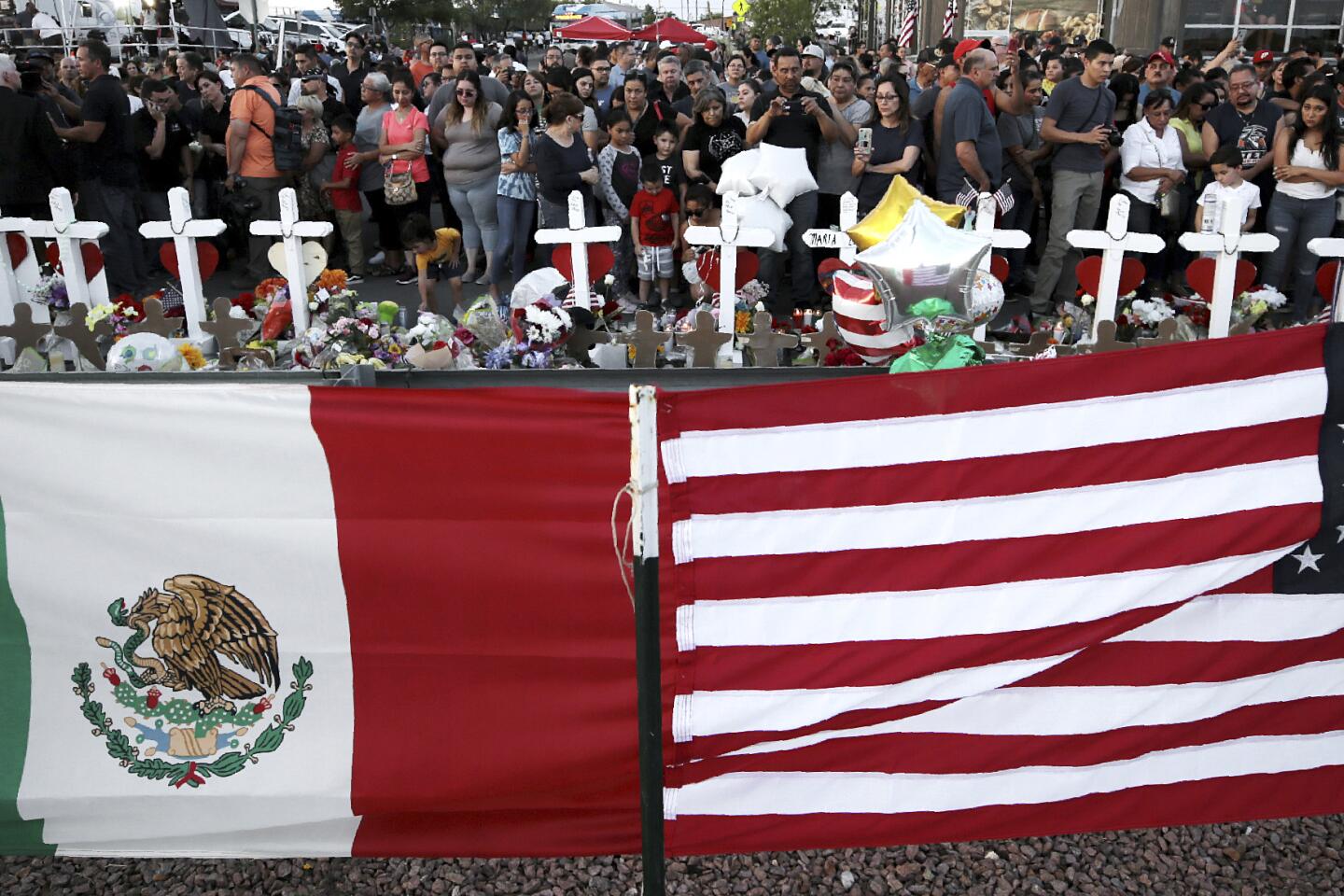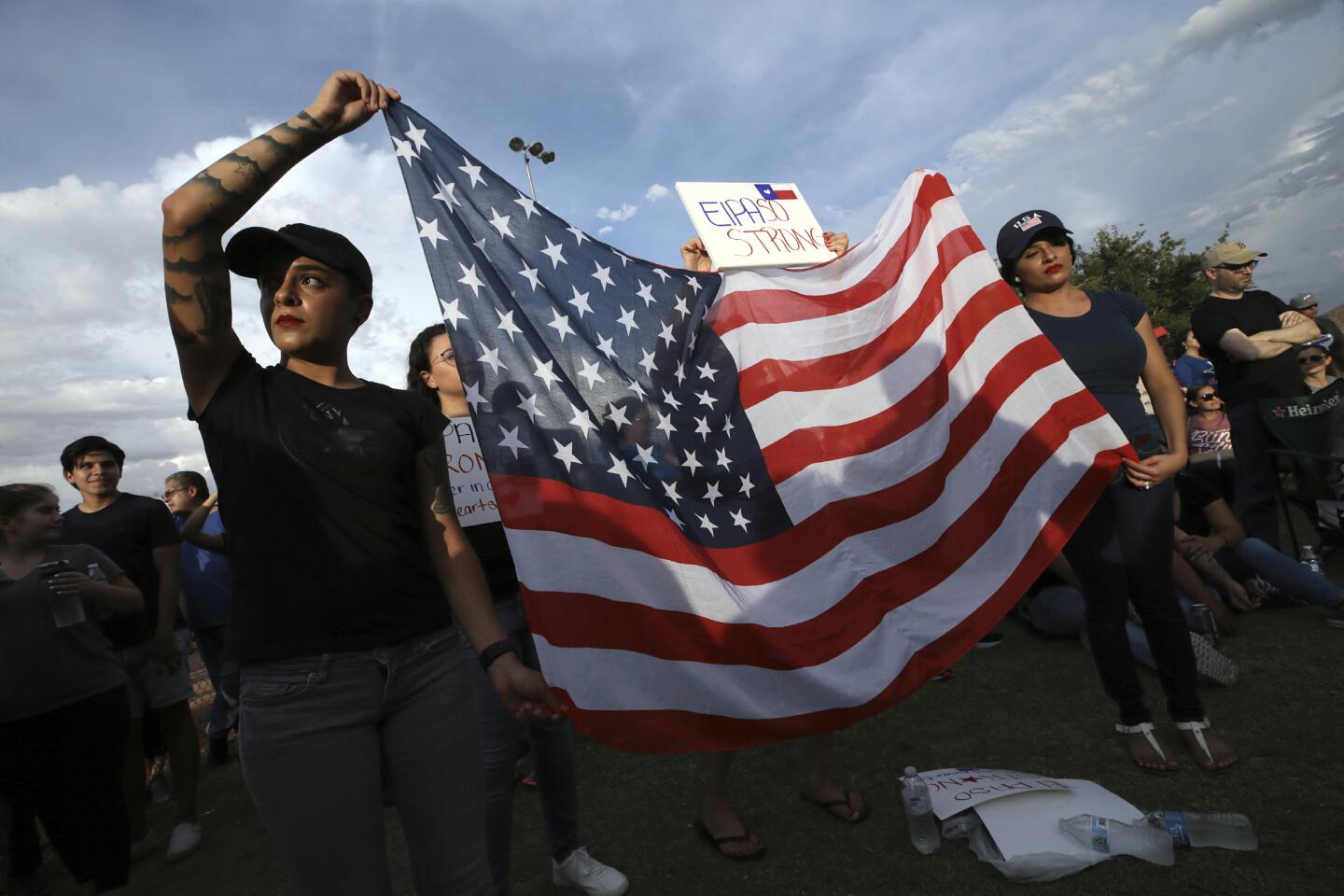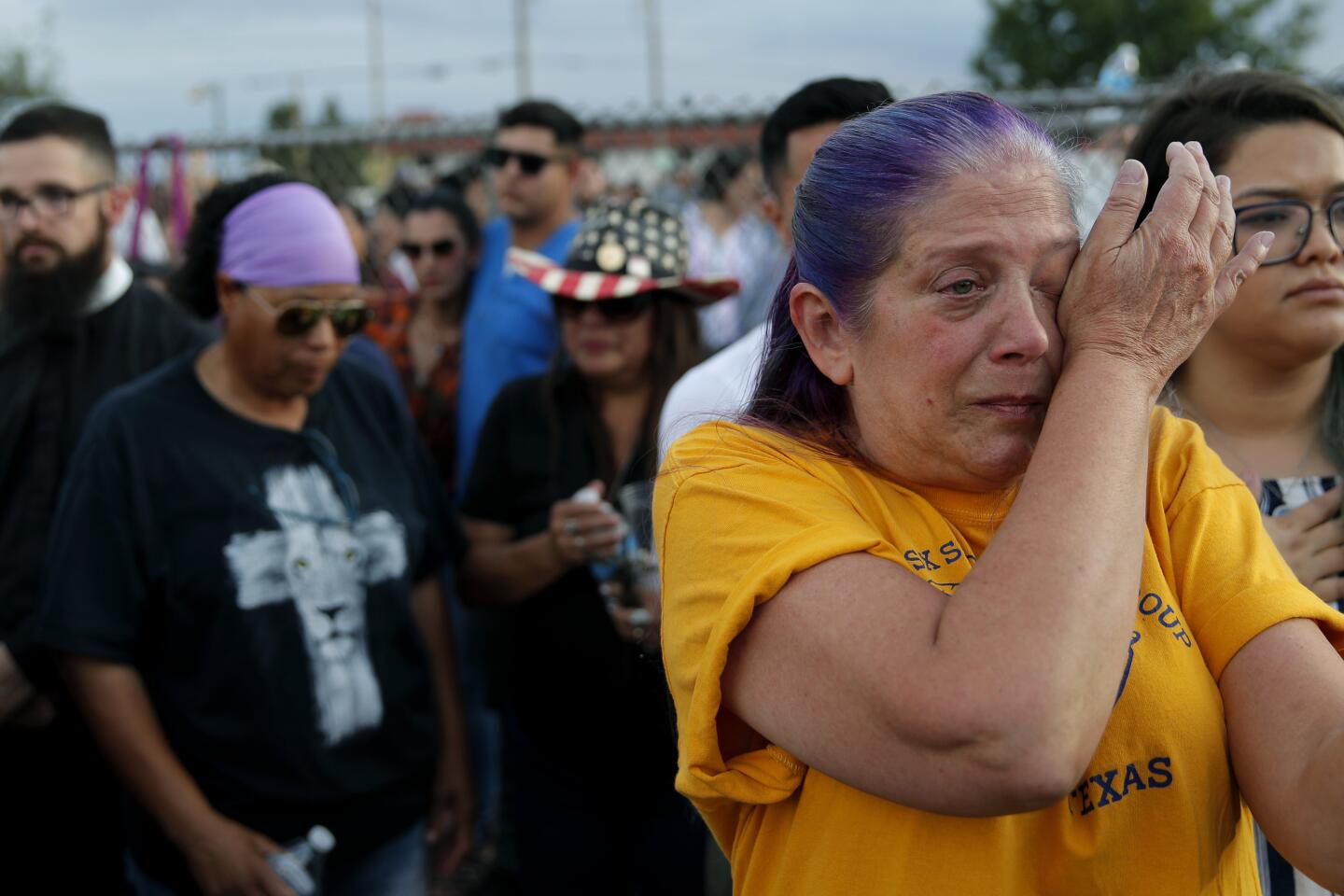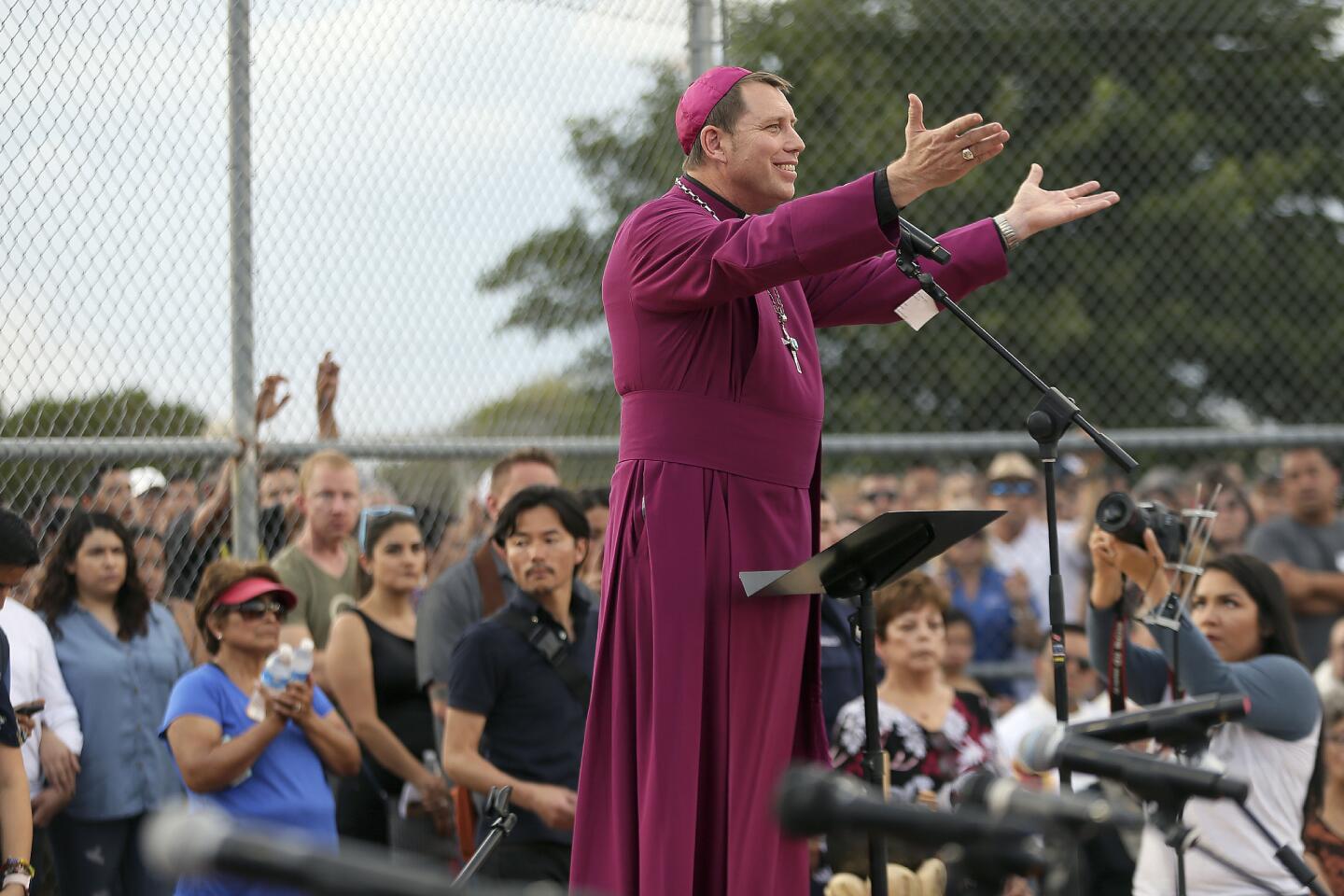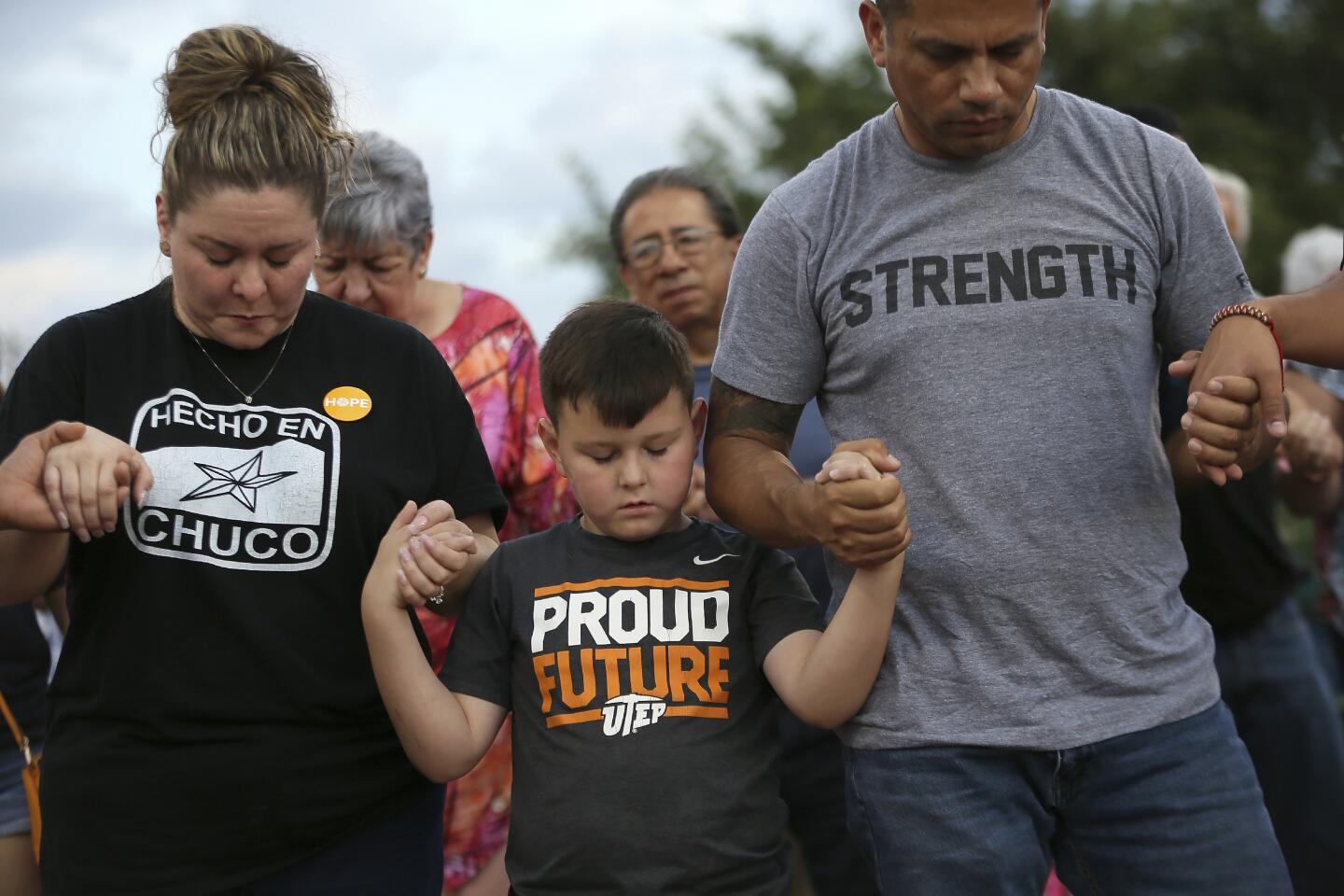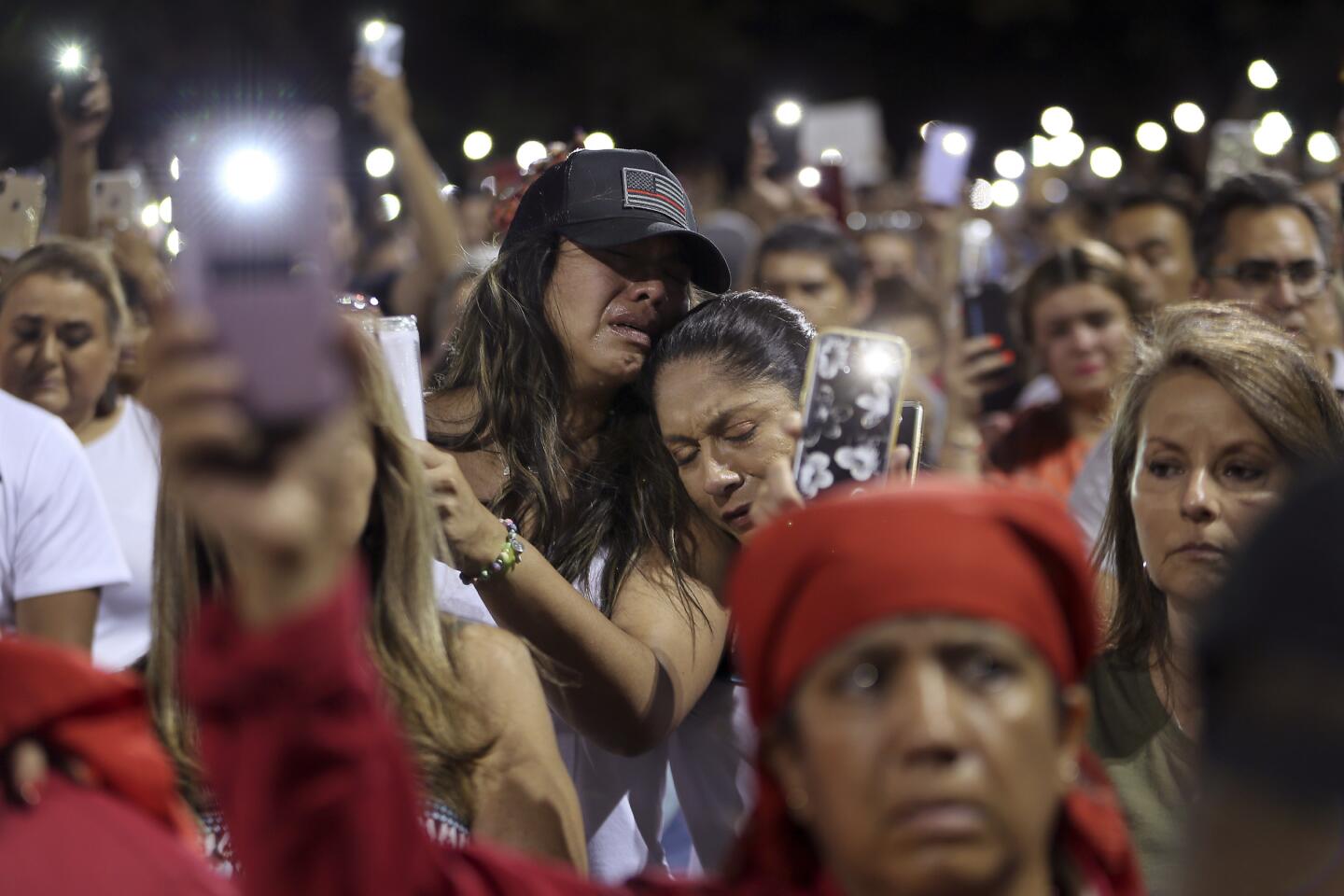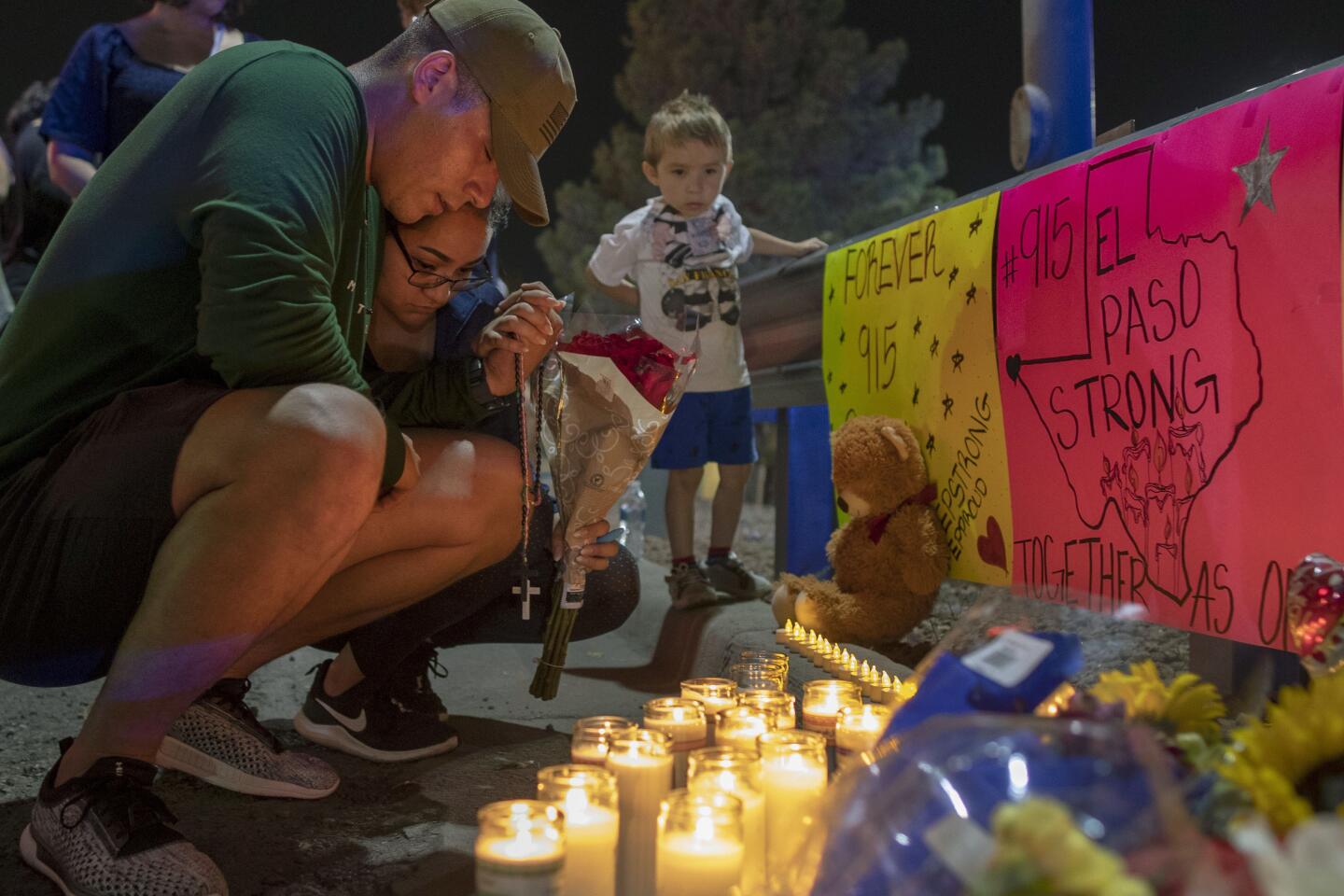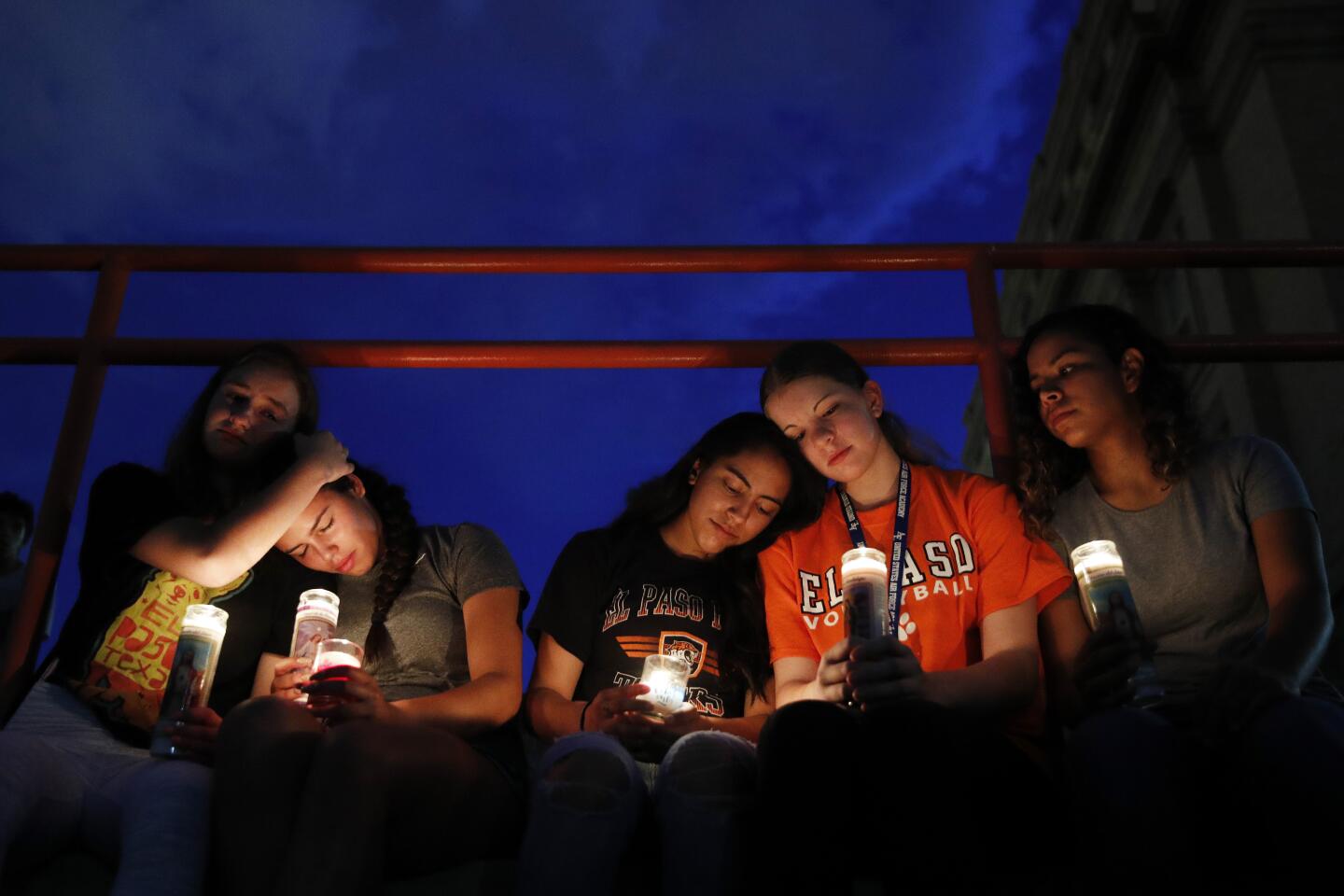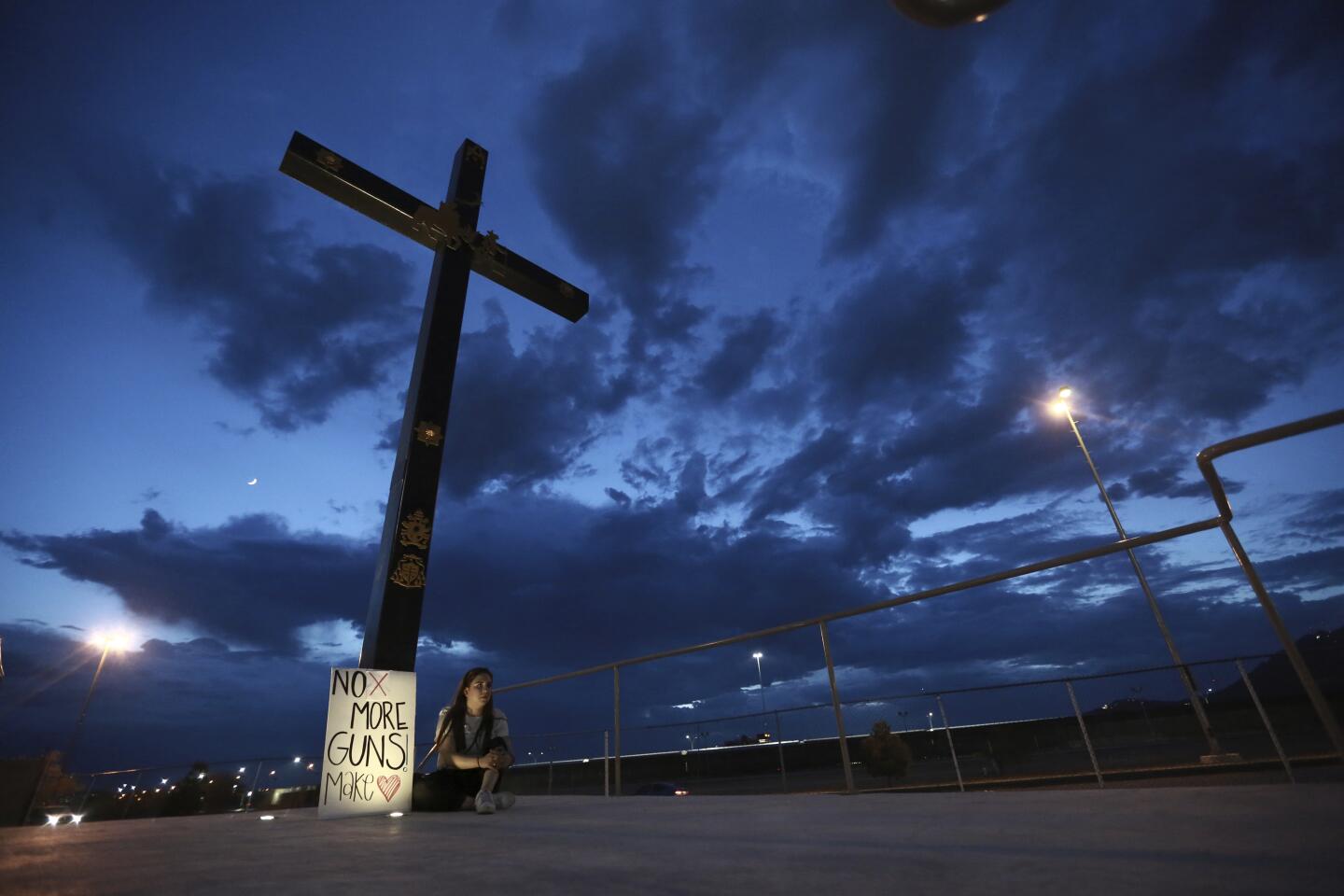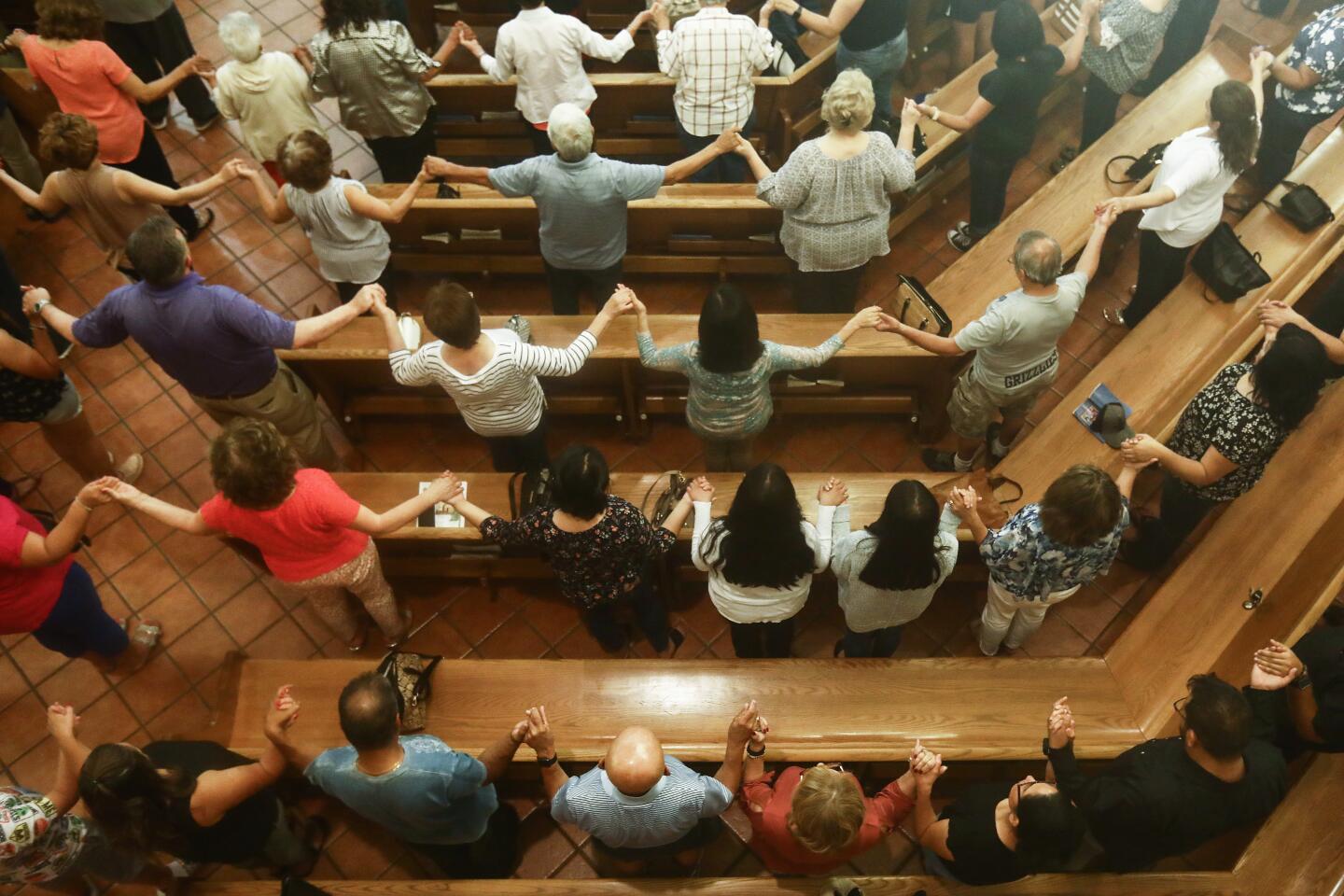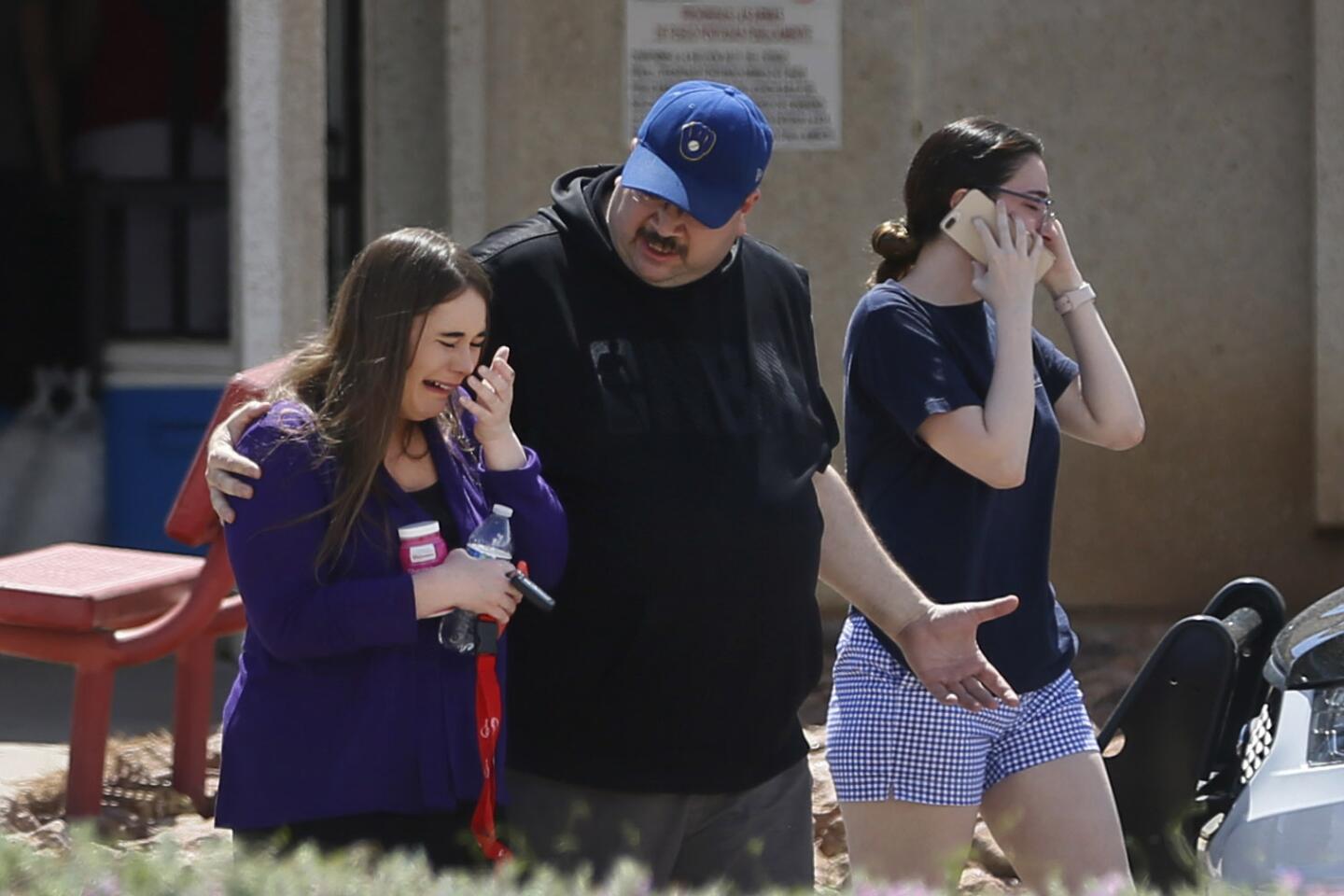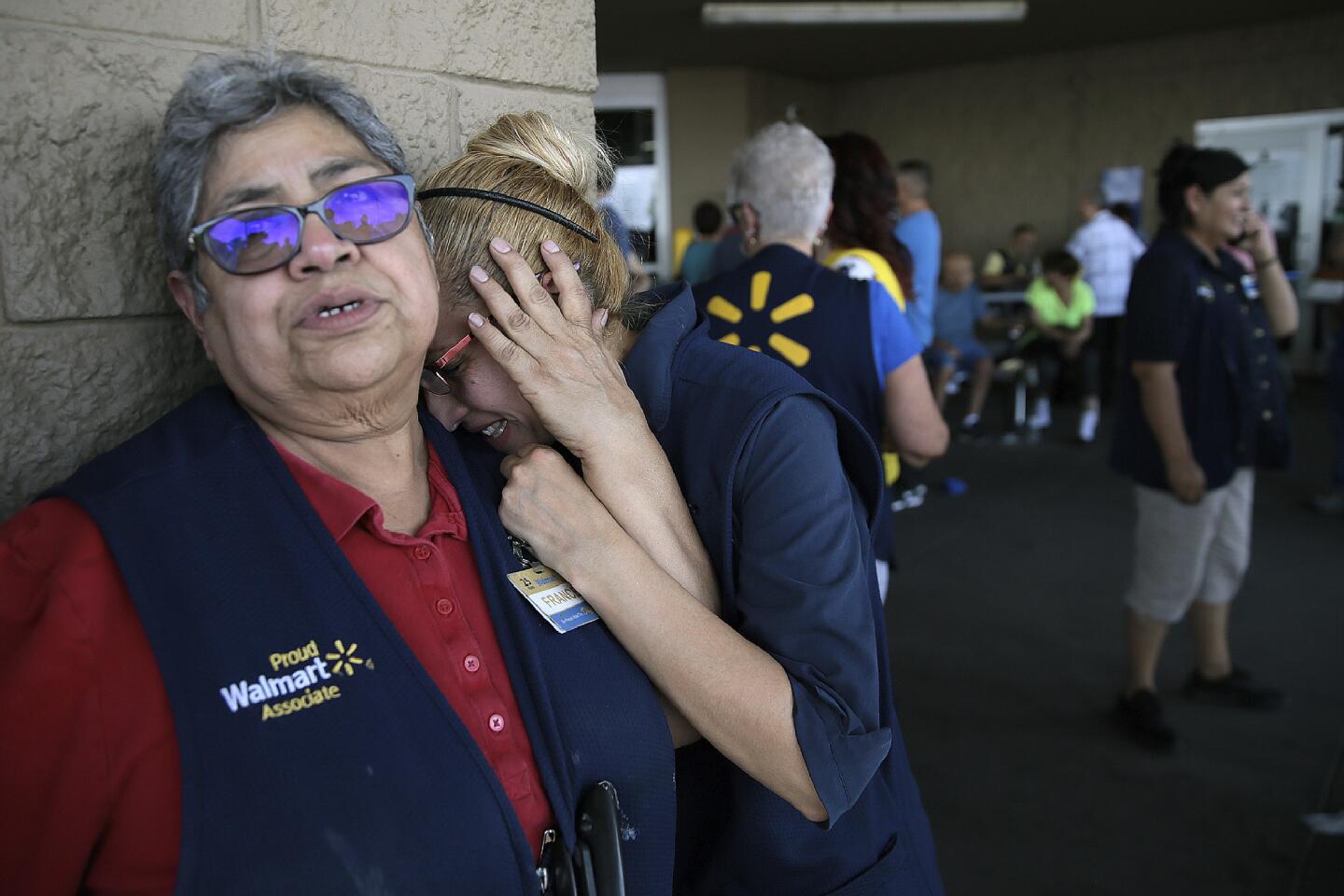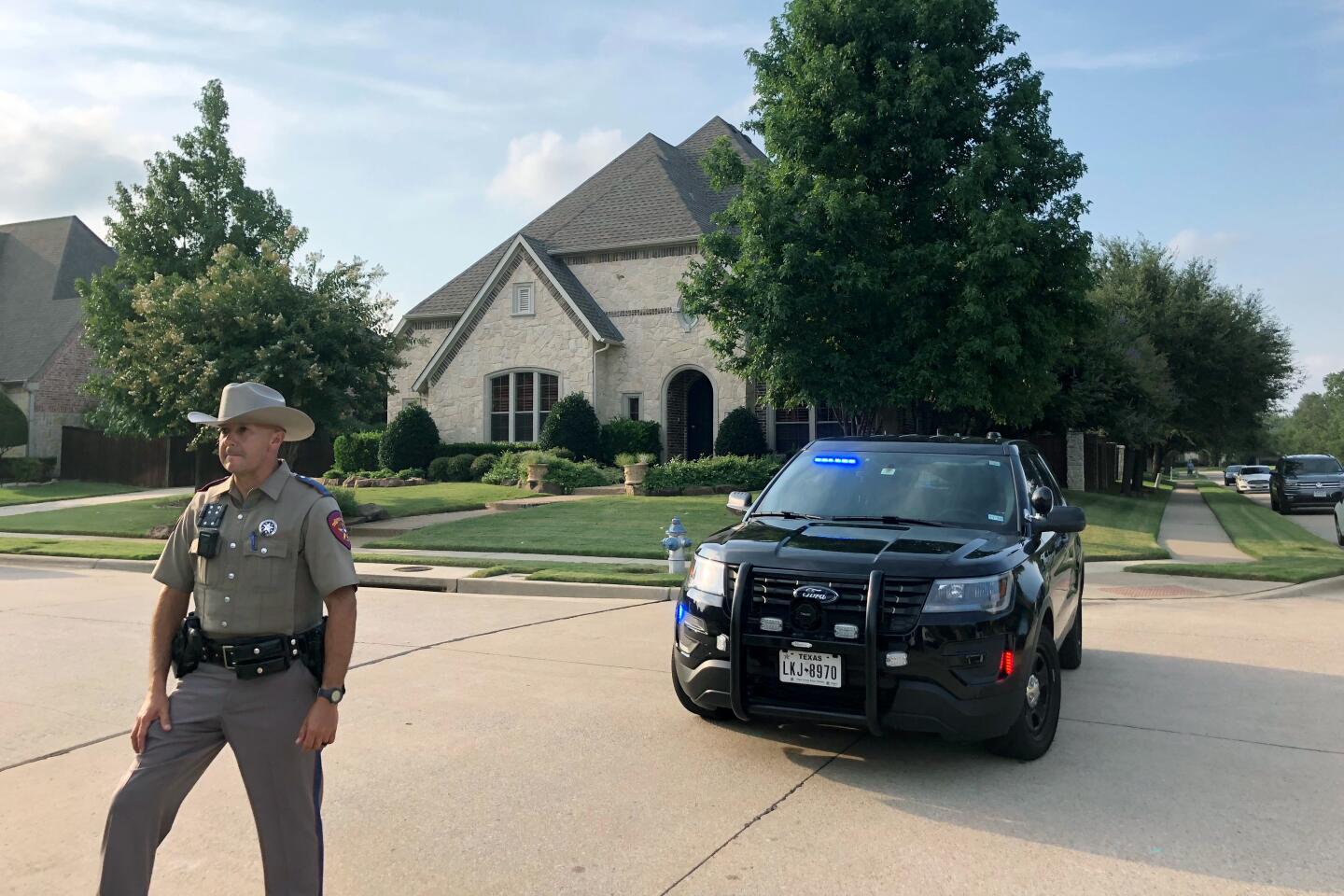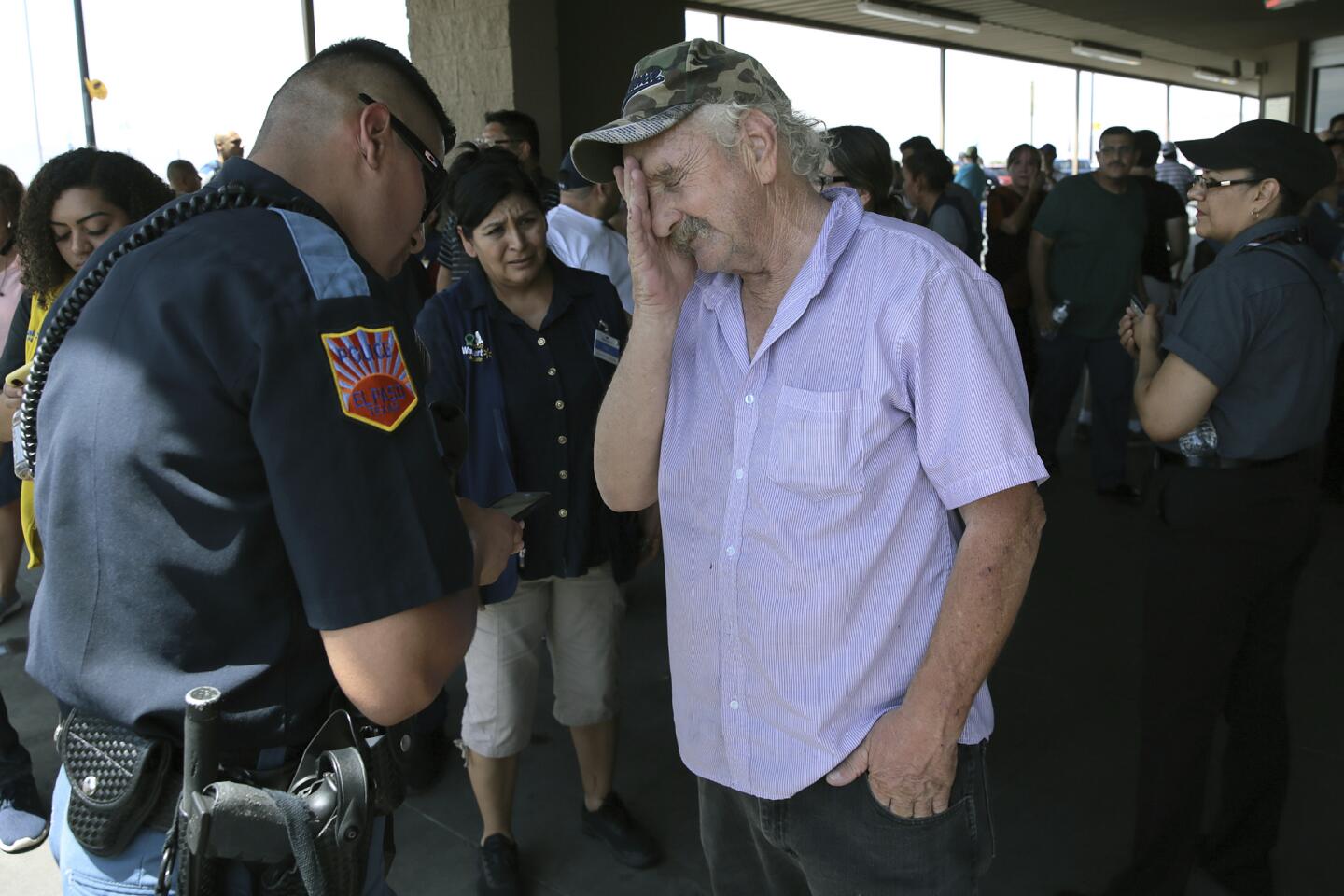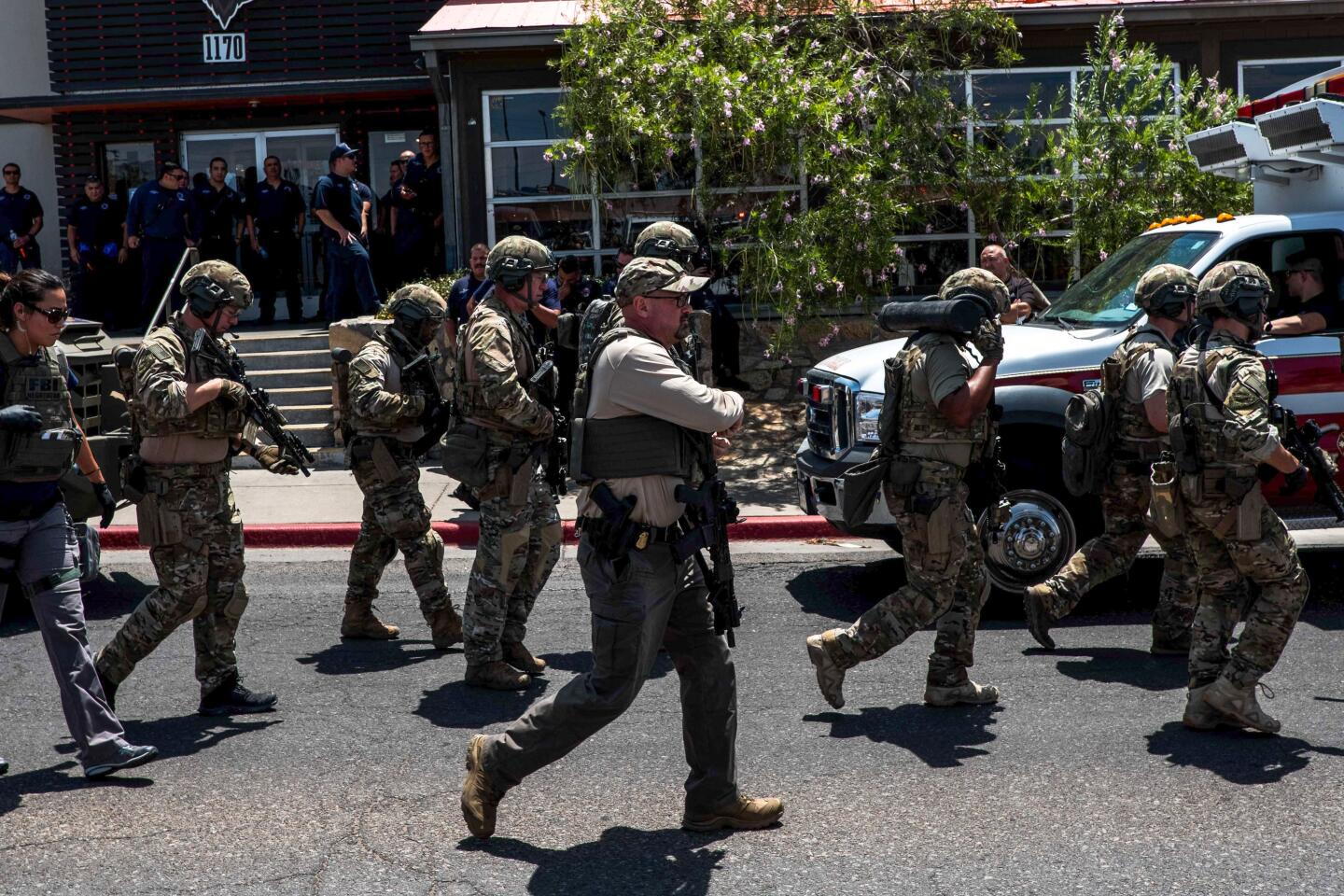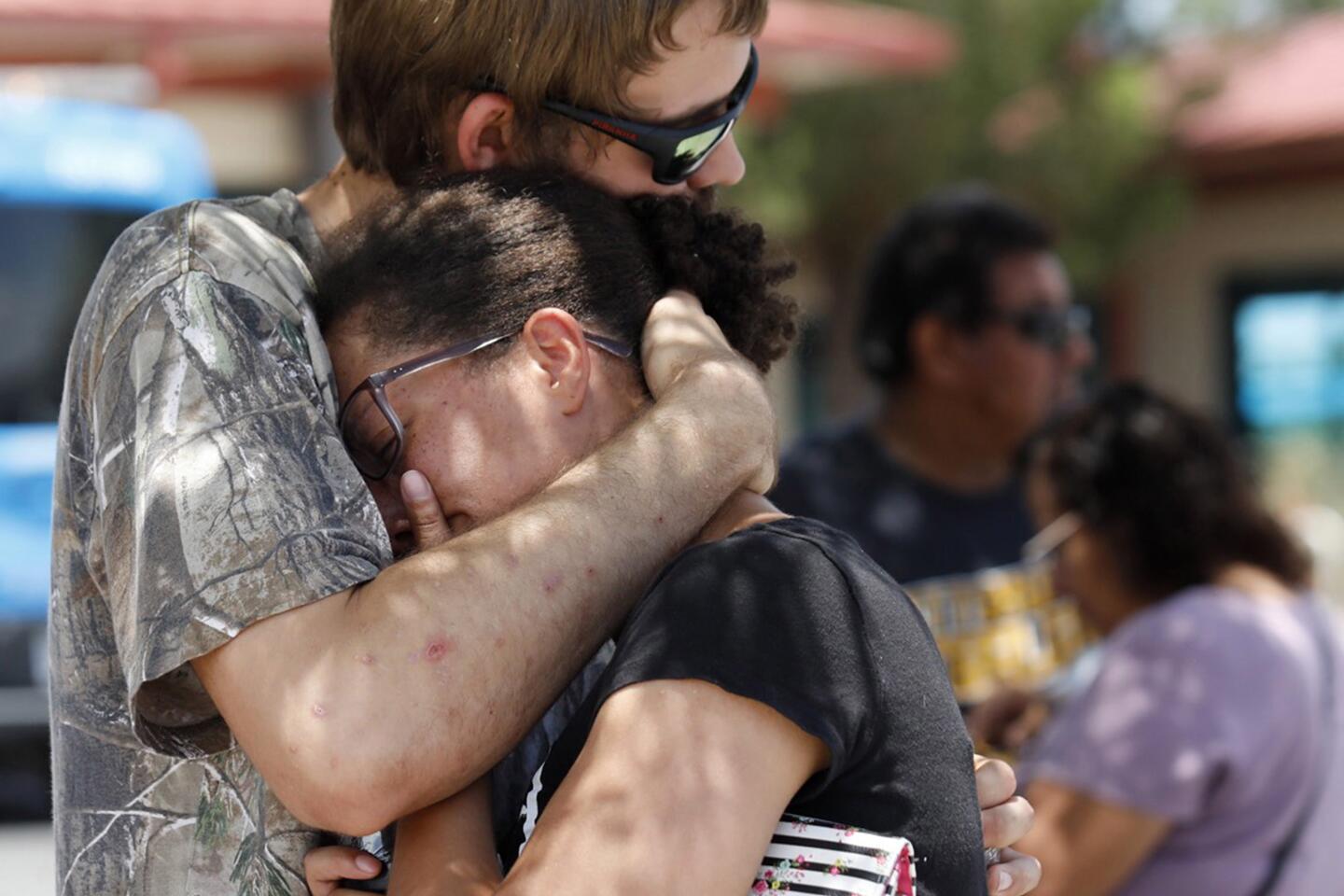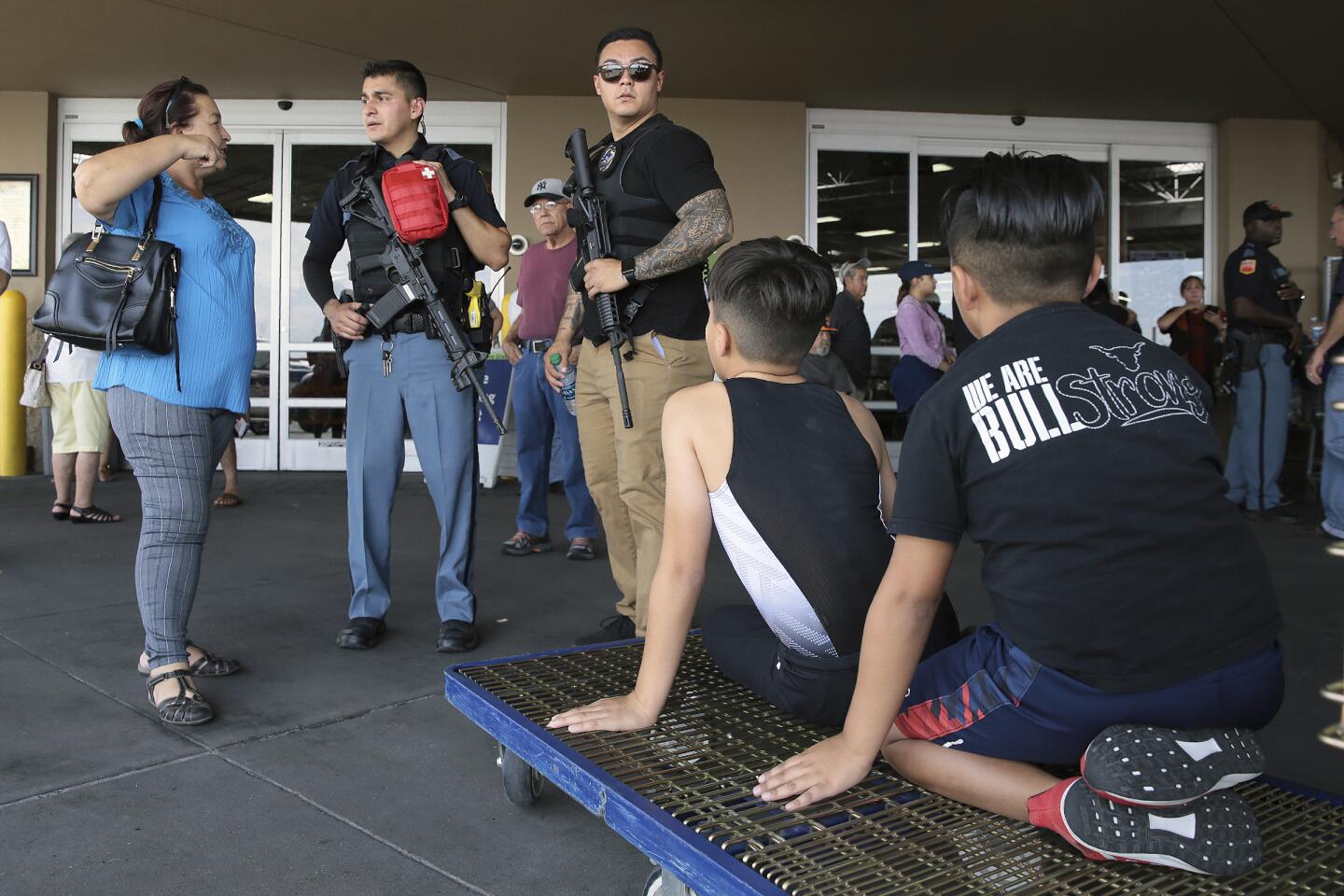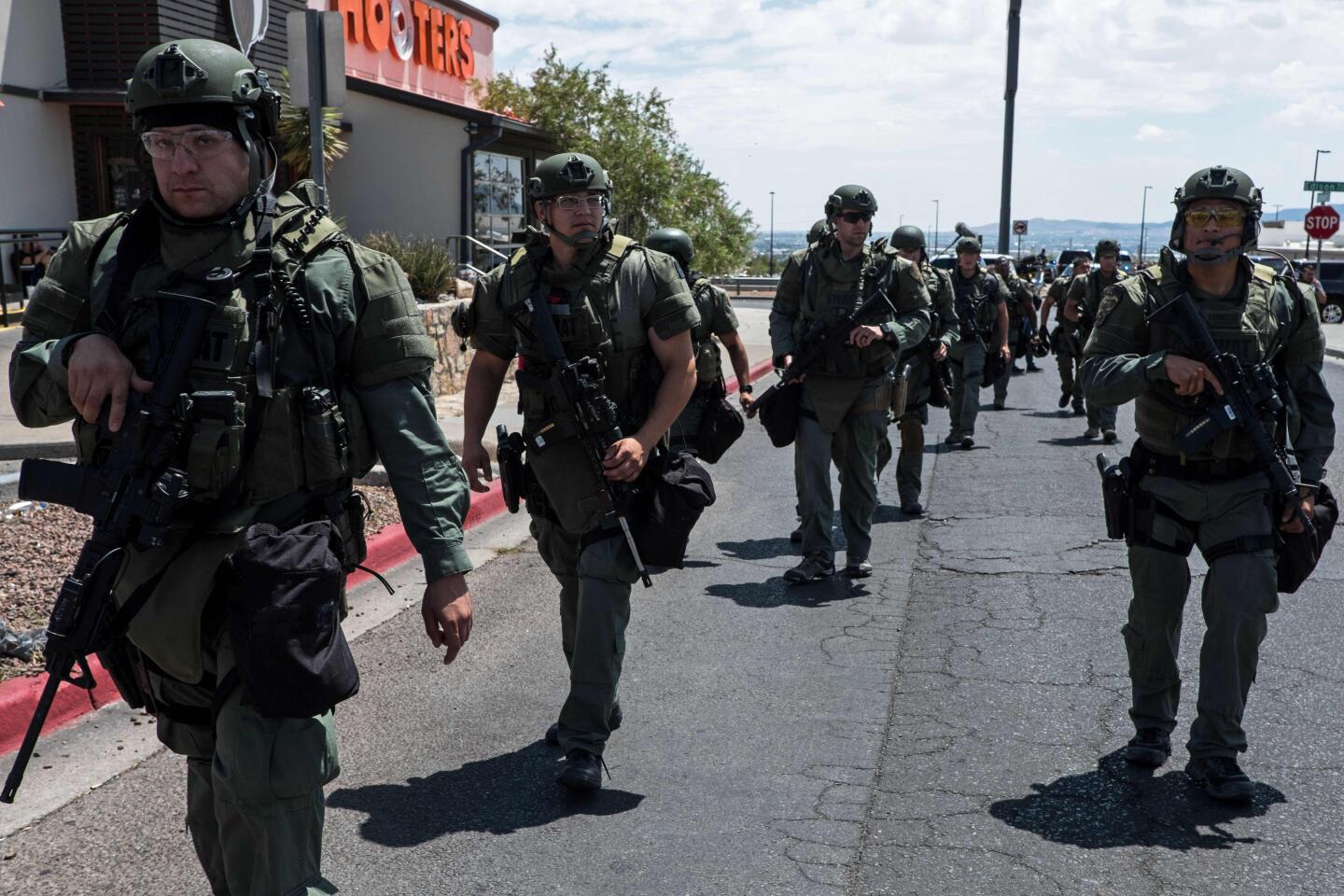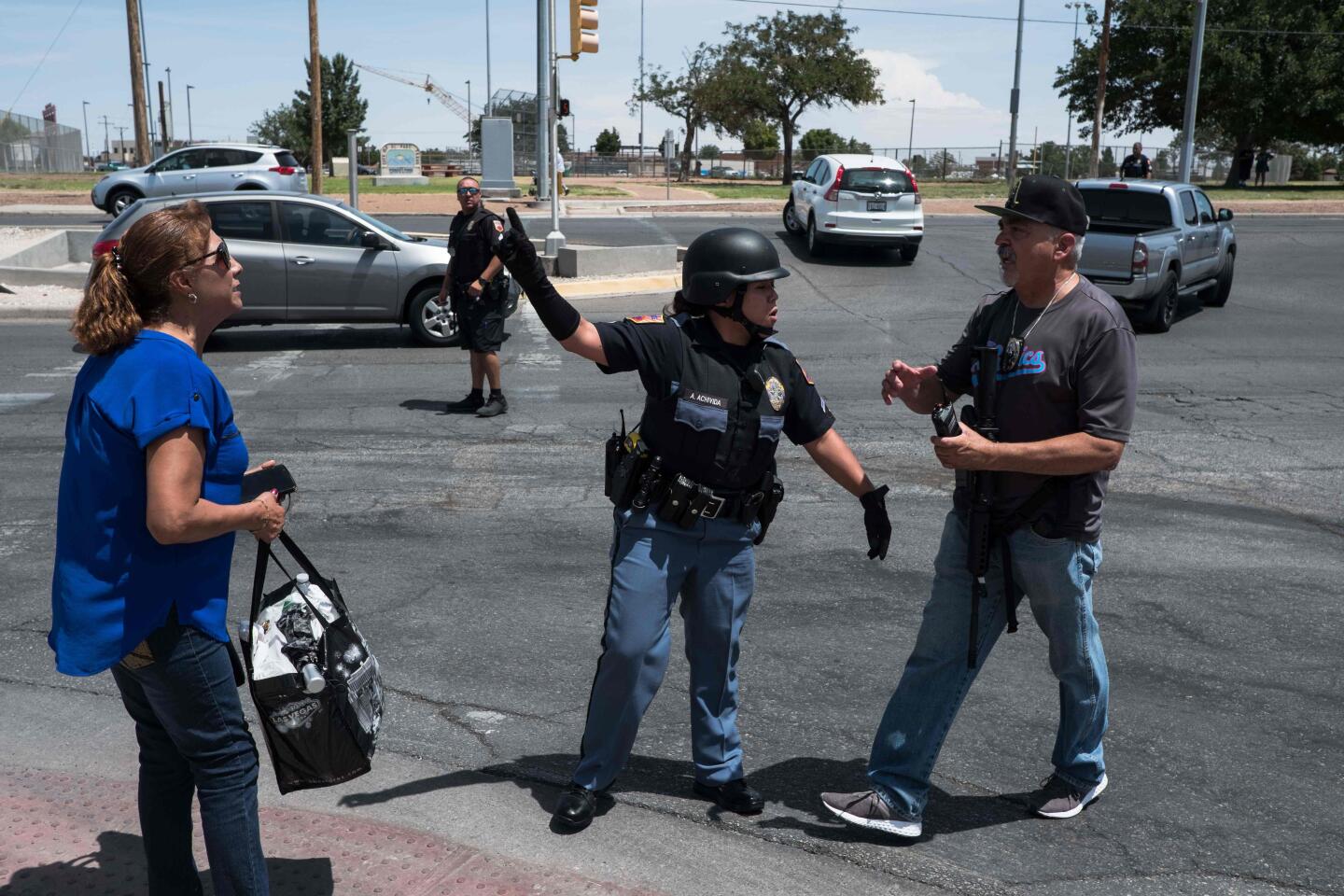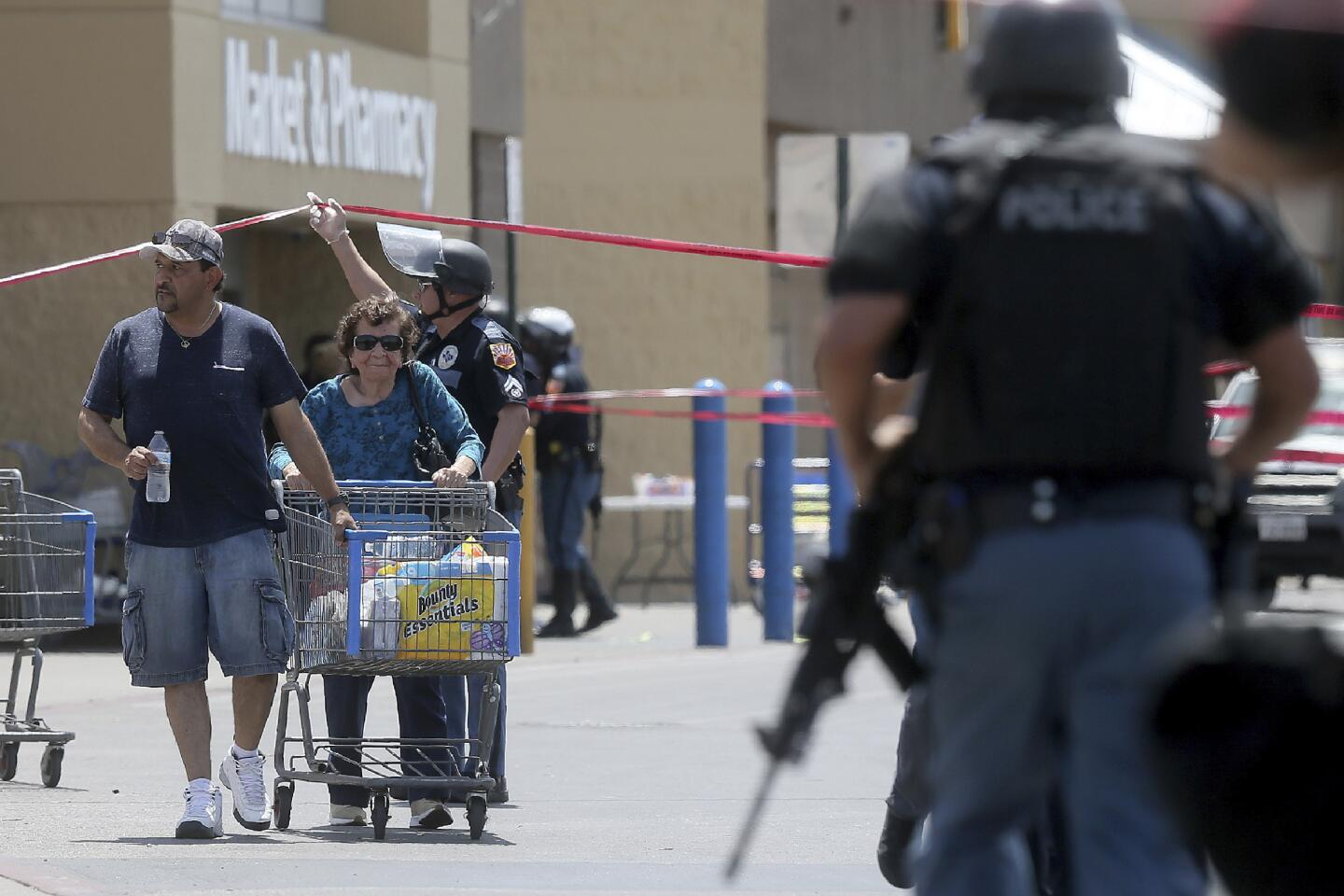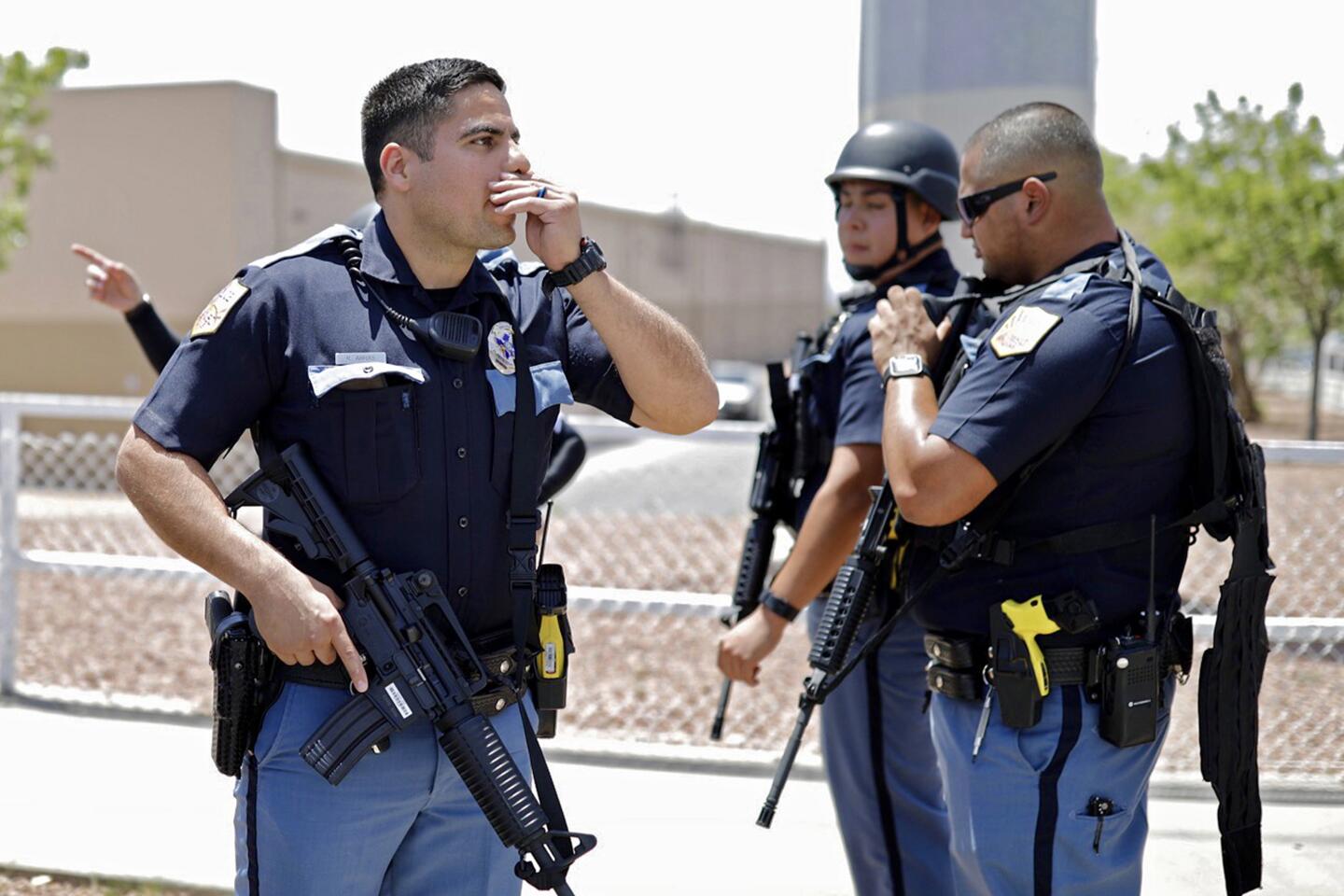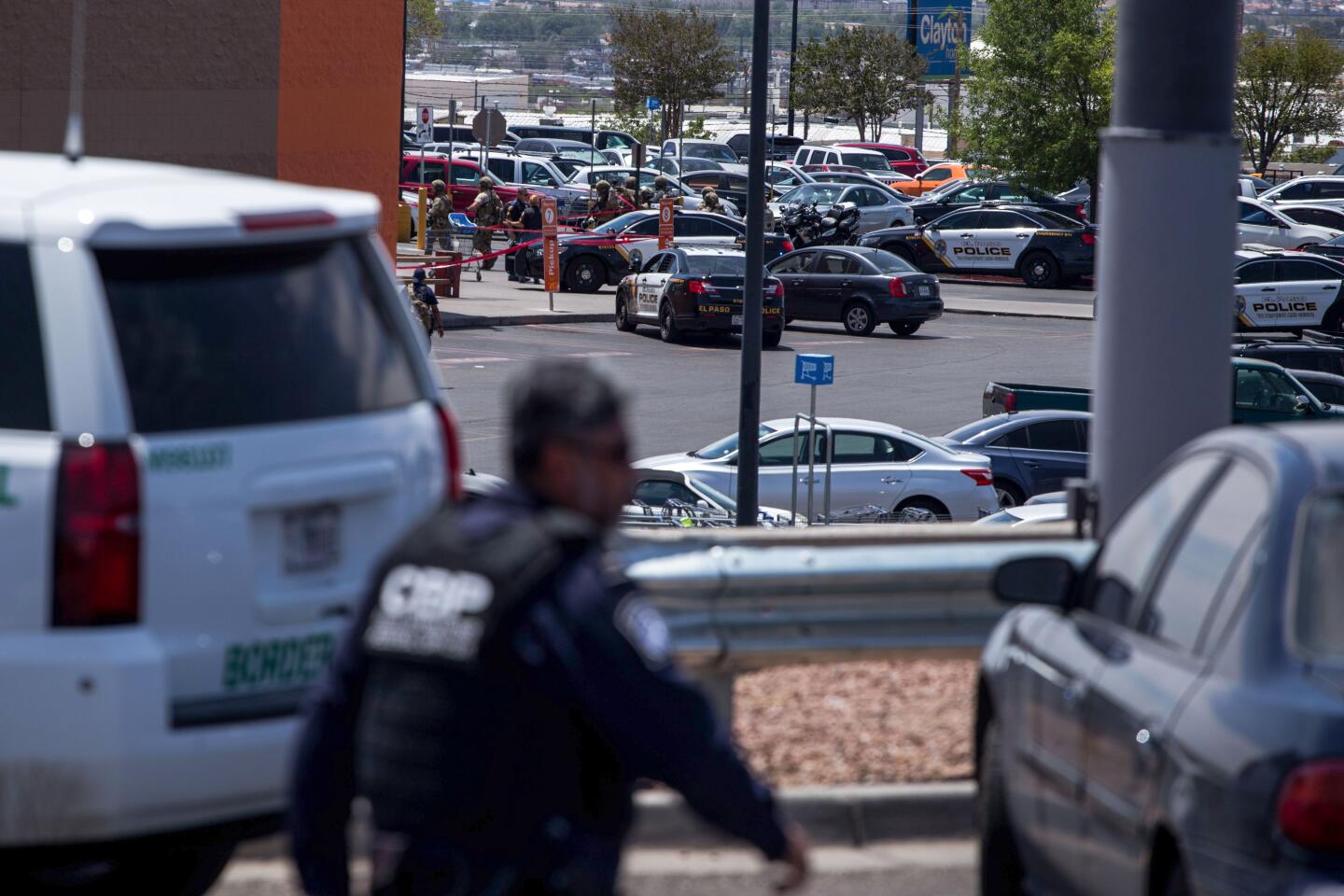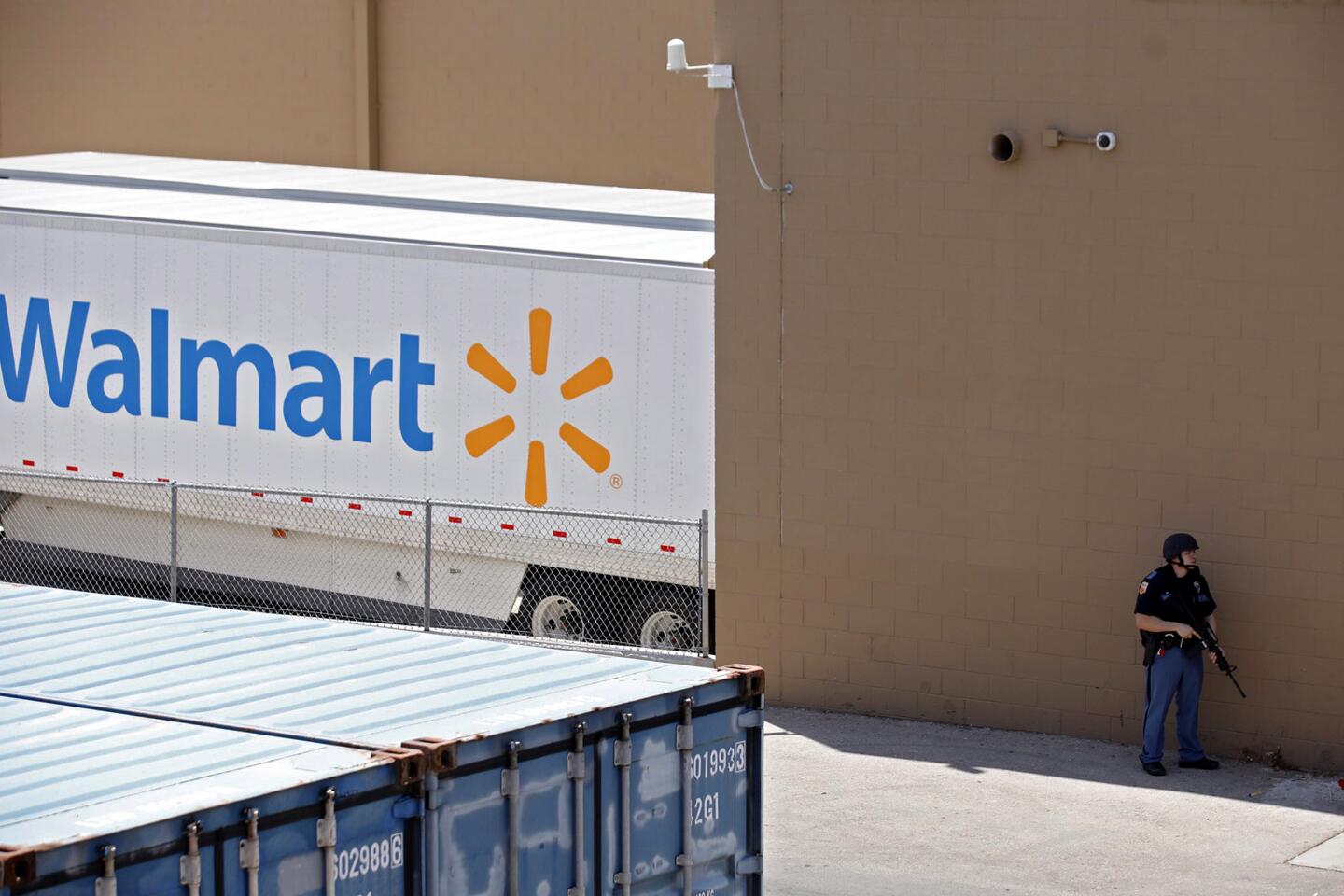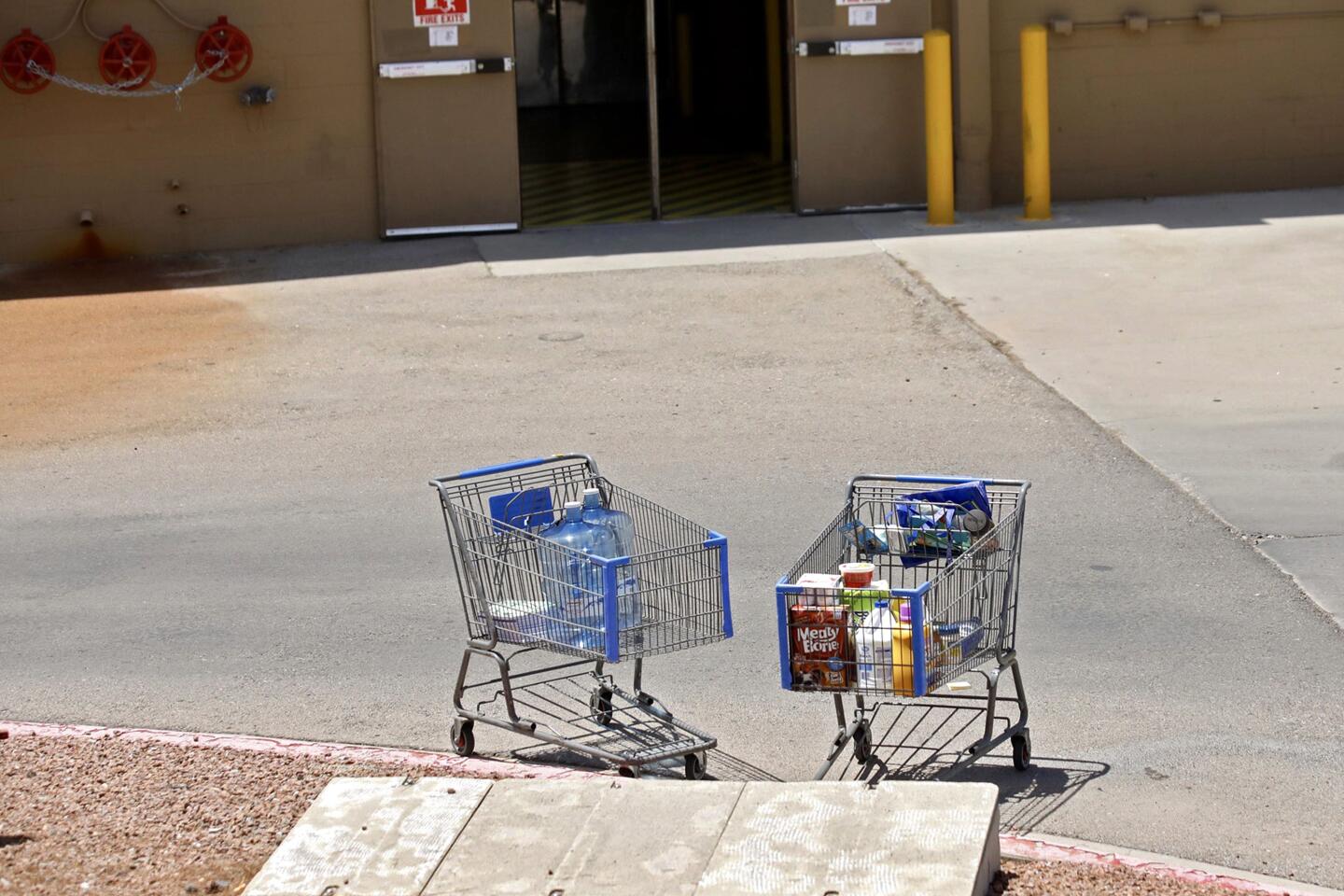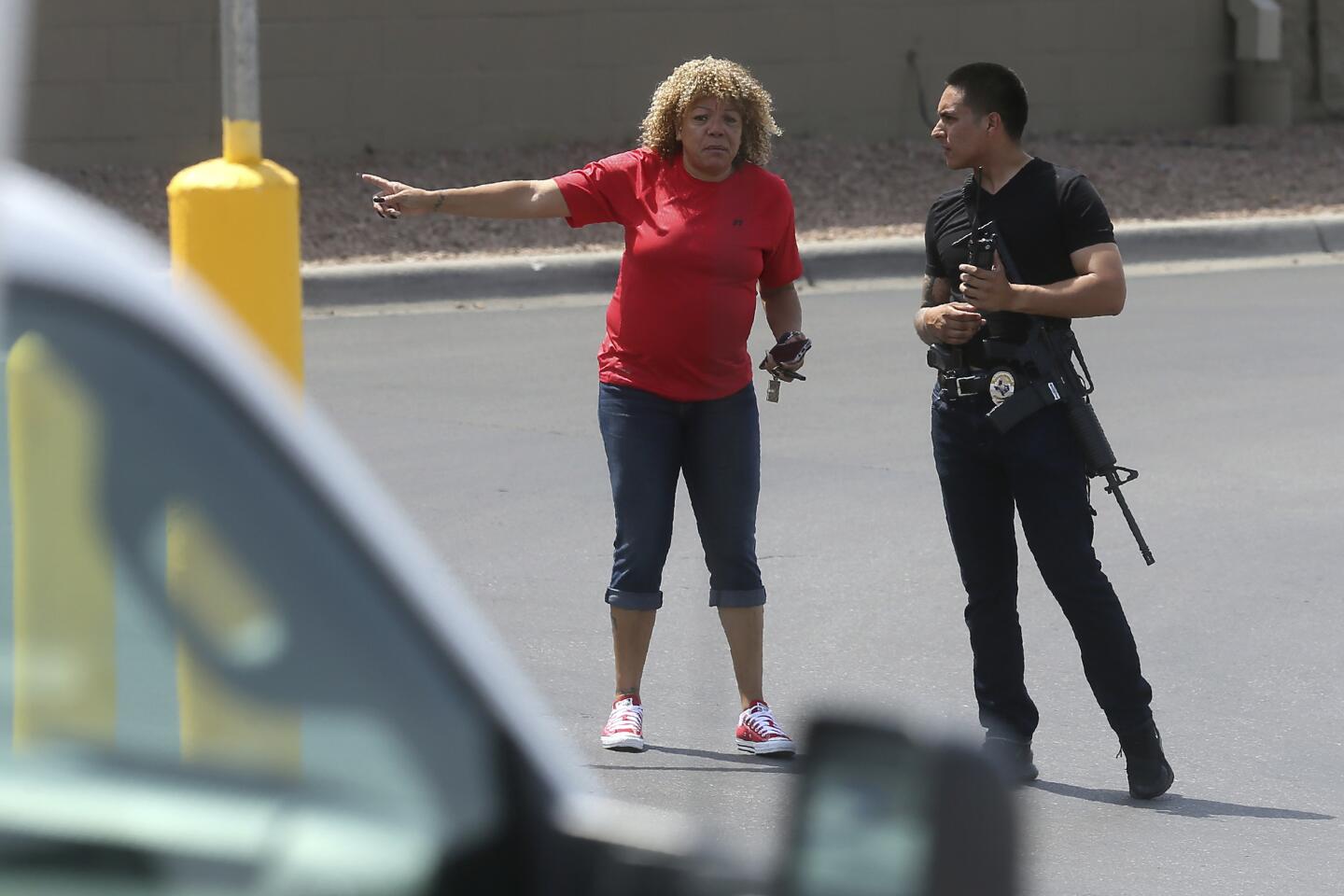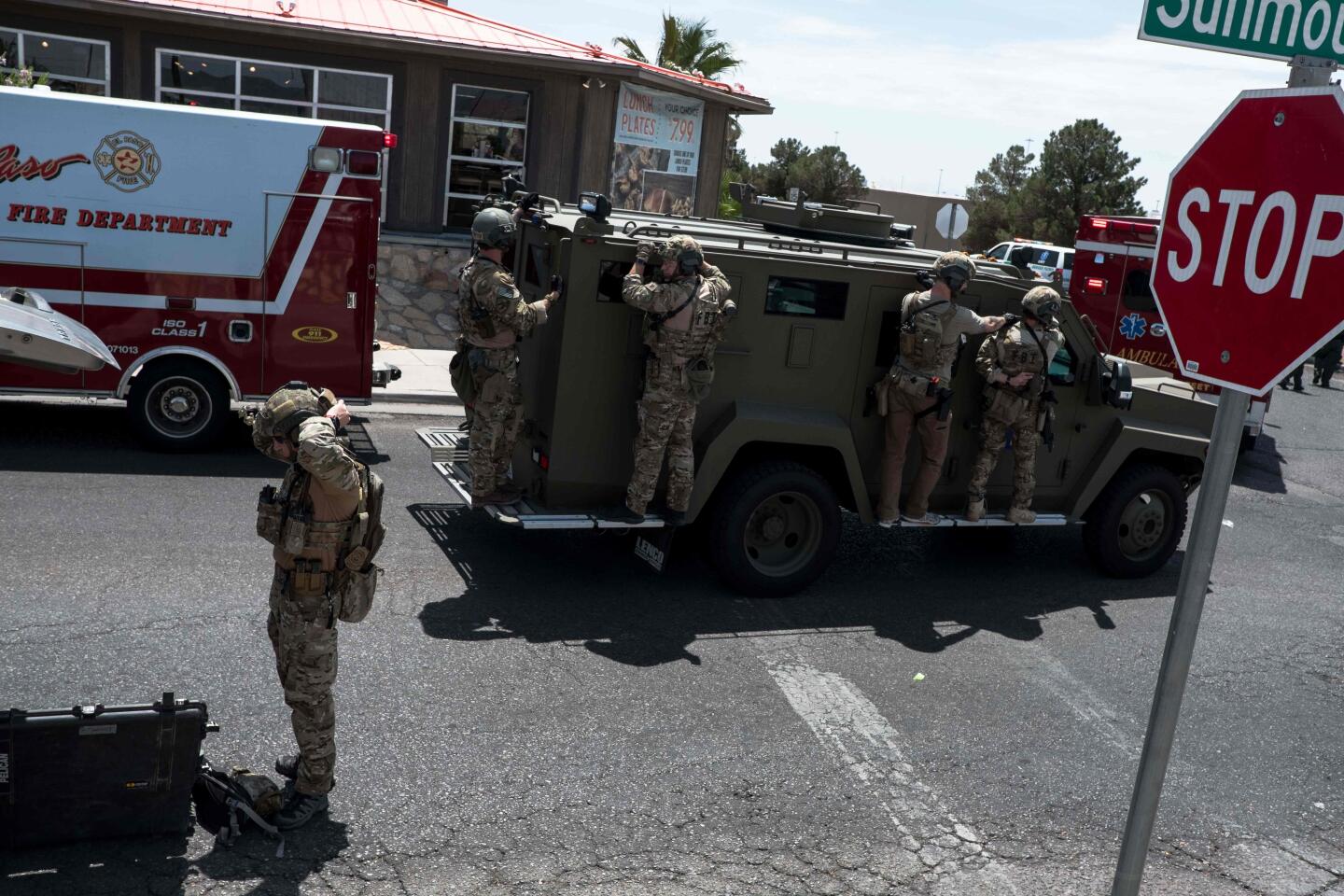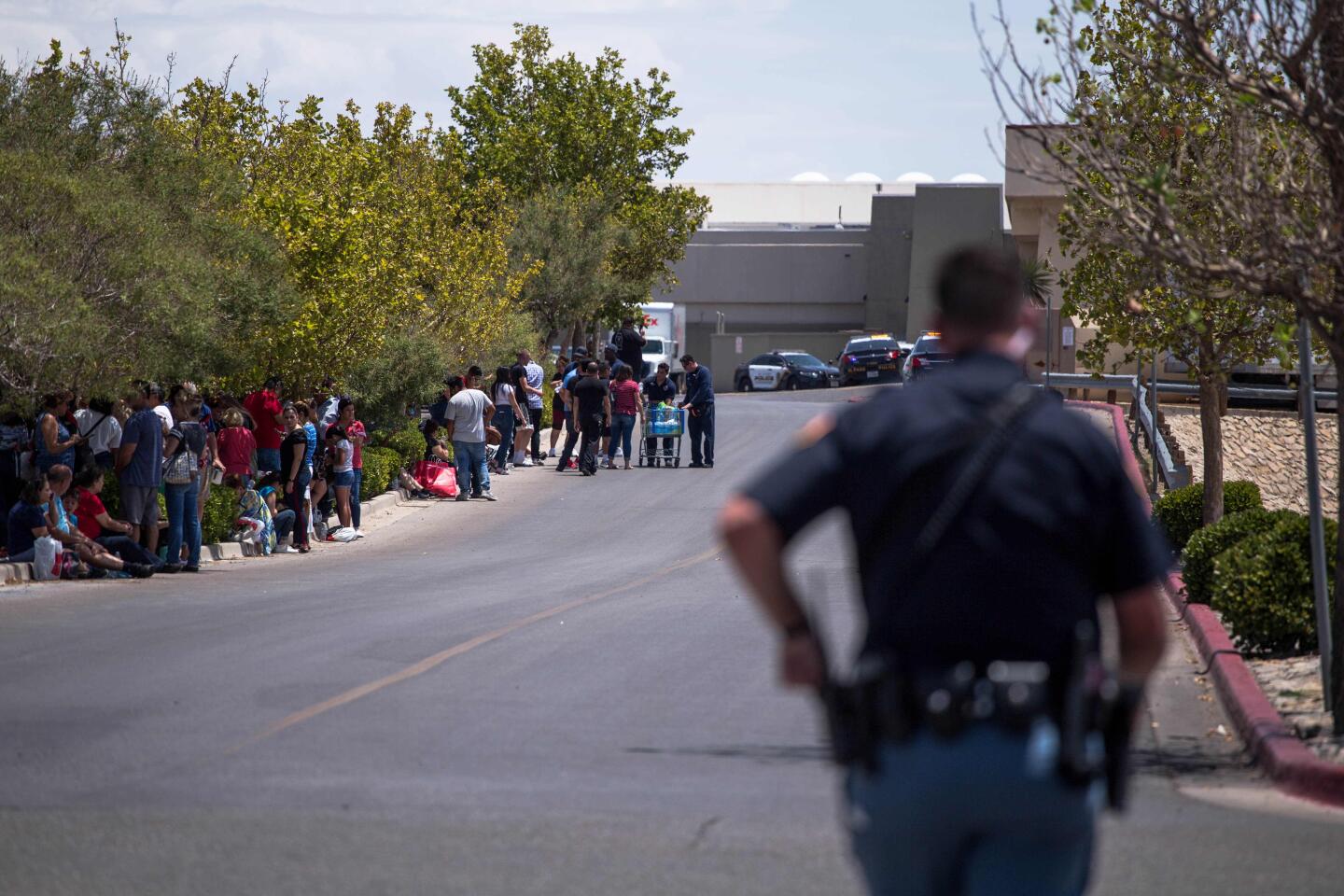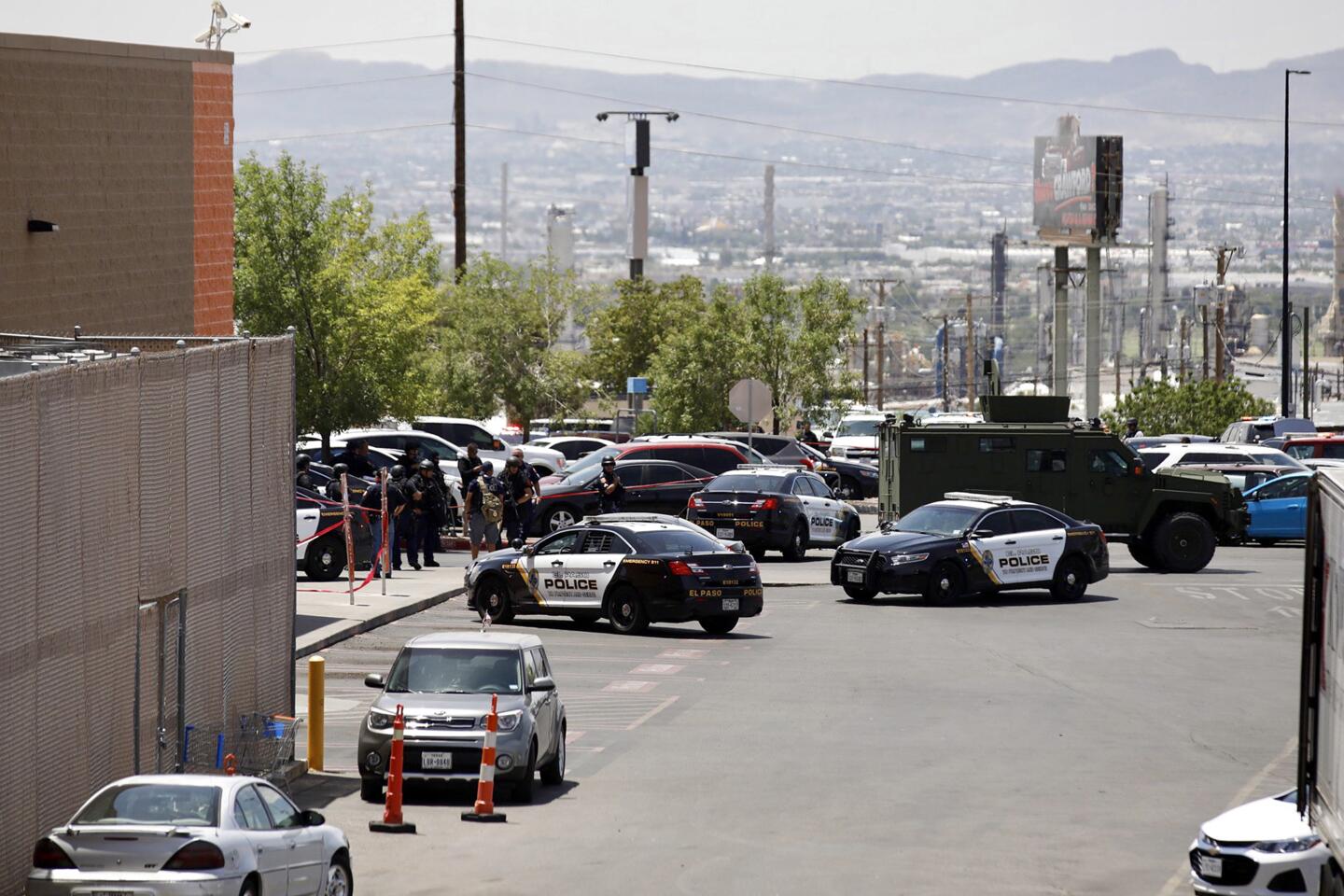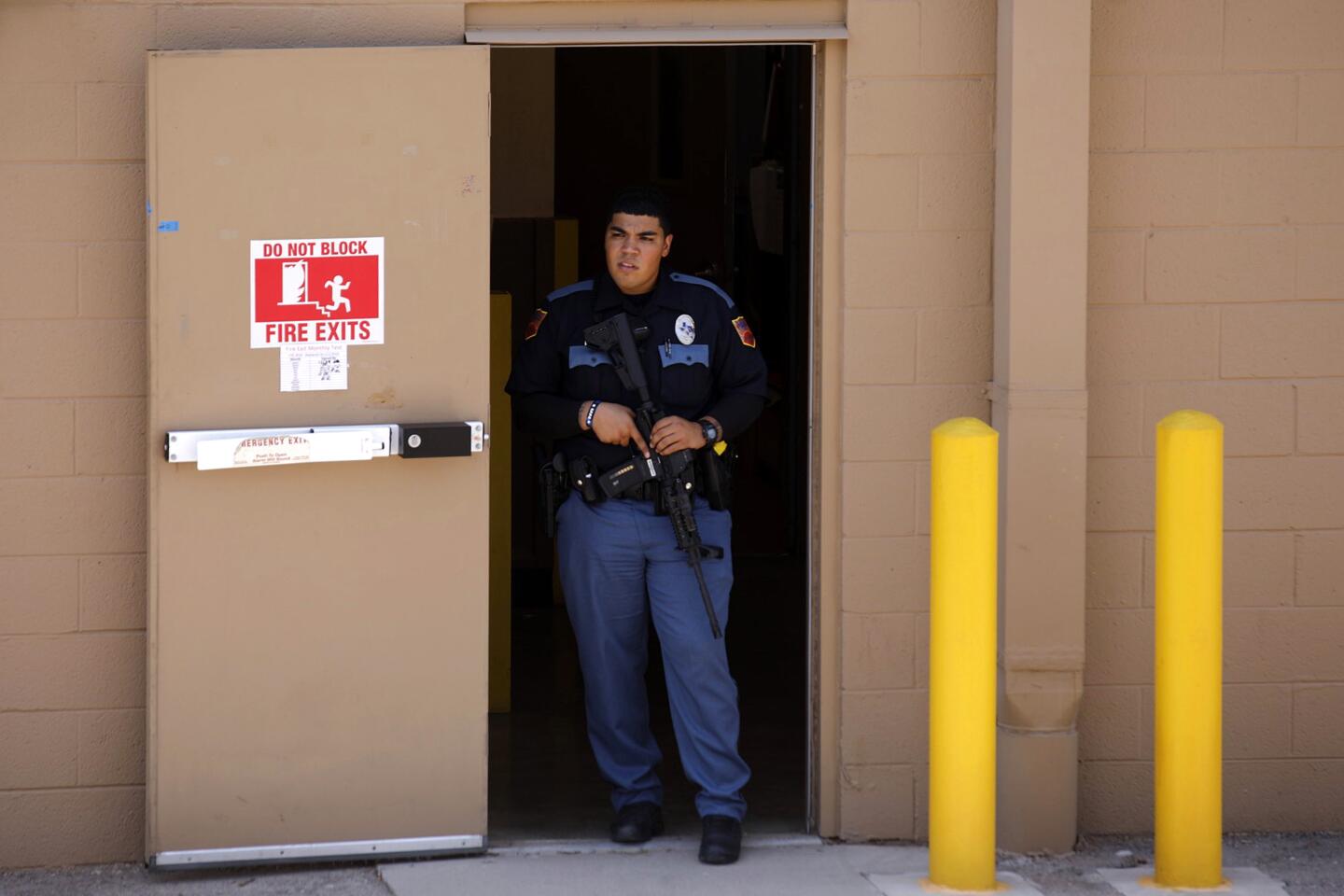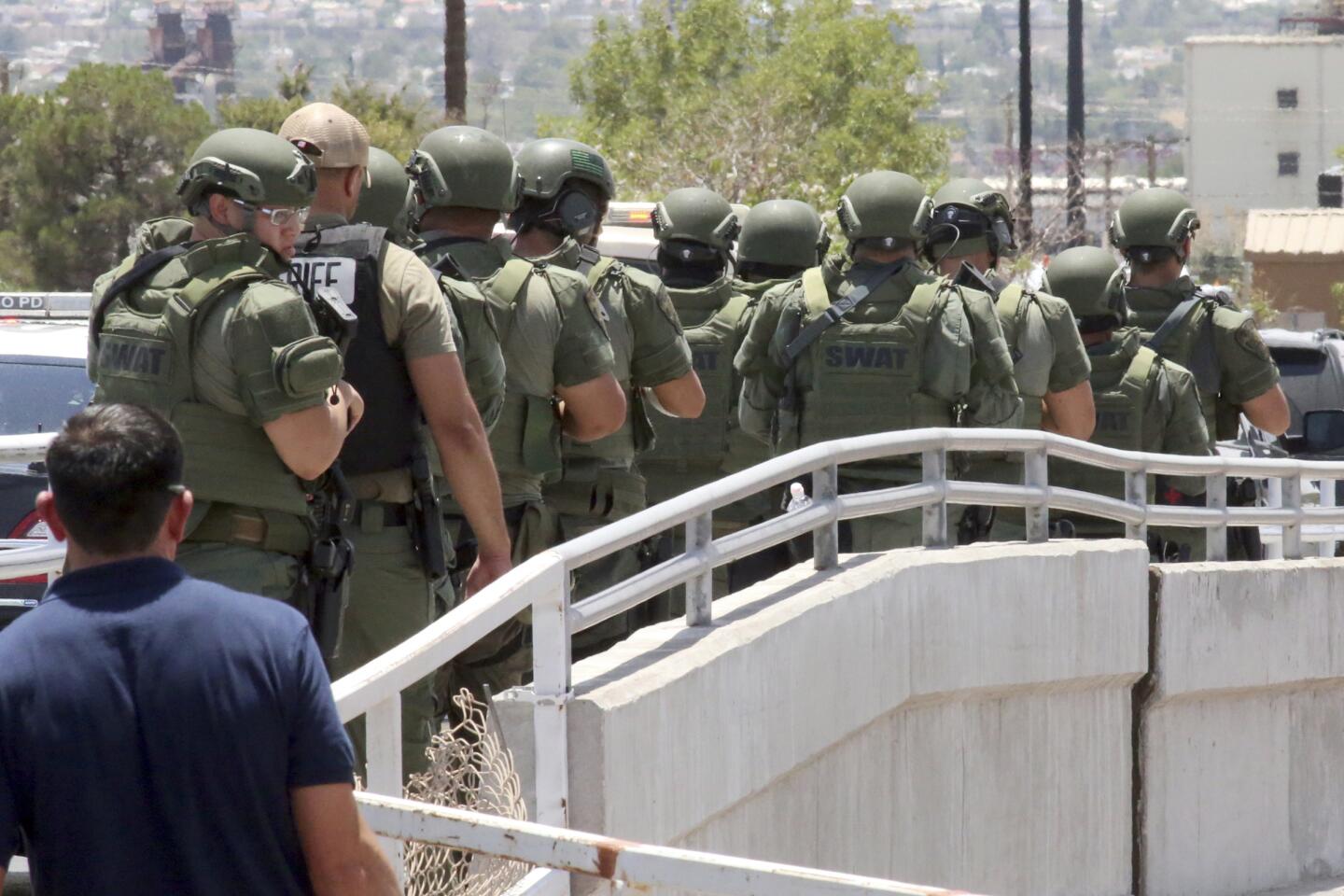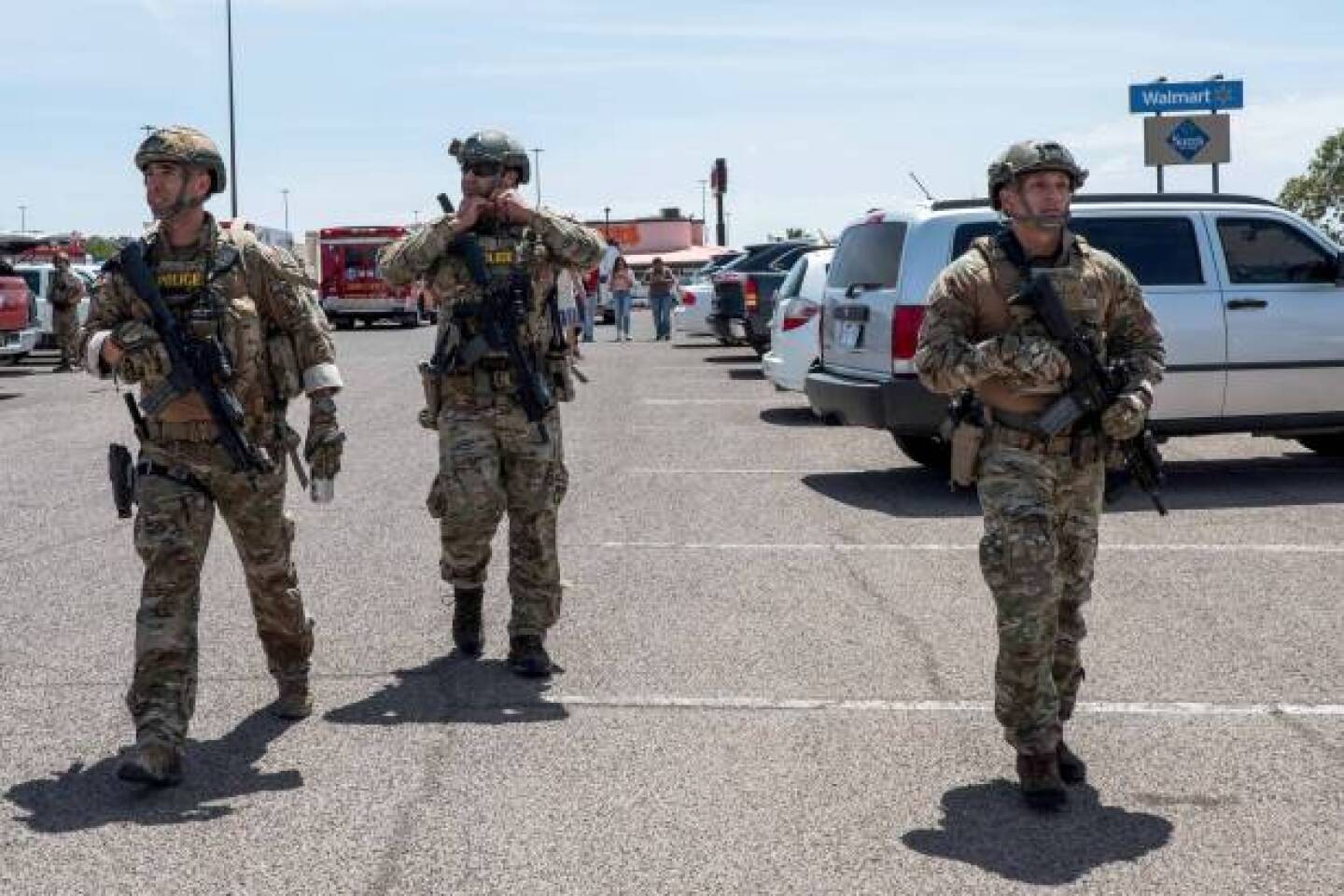For Mexican Americans, El Paso is a beacon. That makes racist massacre more devastating
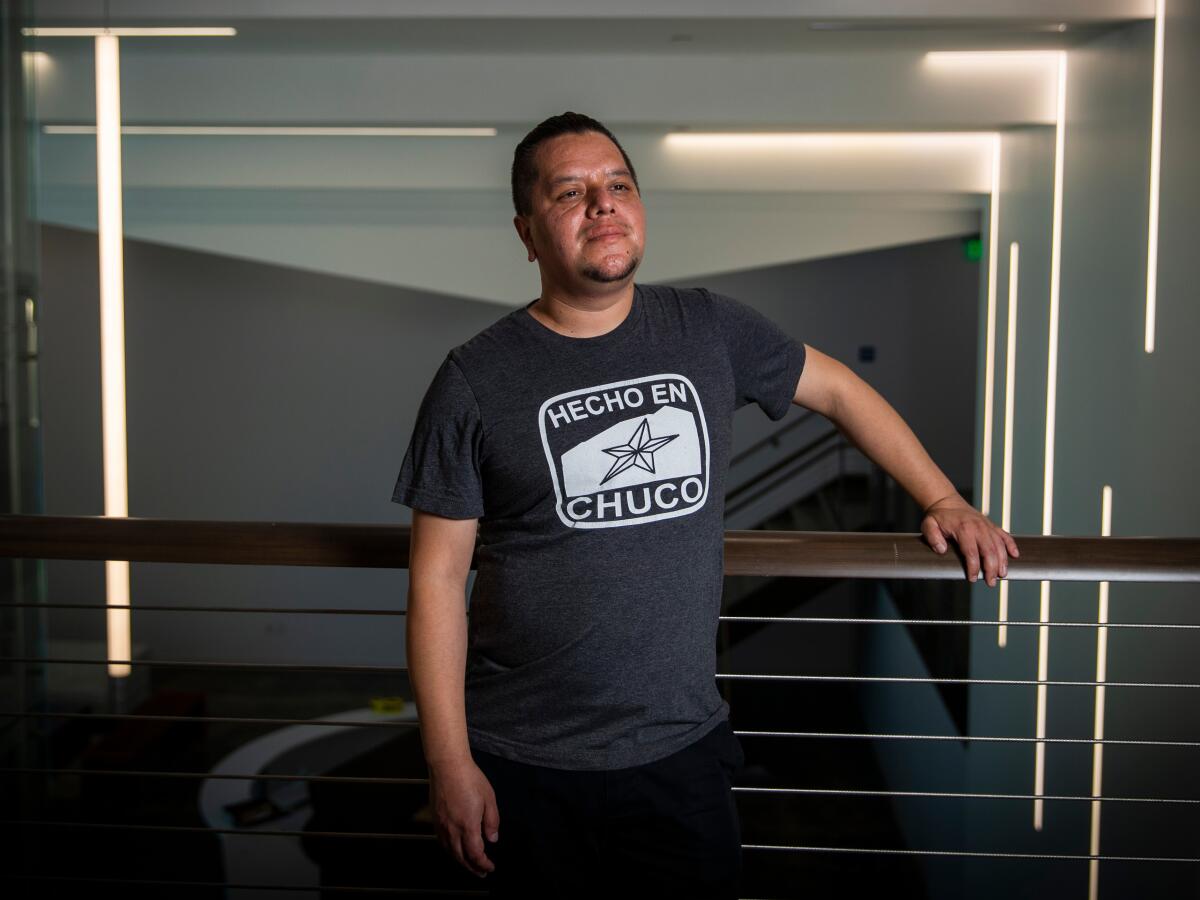
- Share via
The cellphone of Fountain Valley resident Jacobo Alvarez pinged repeatedly on Saturday with news that a gunman had killed 22 people, nearly all Mexican nationals or Mexican Americans, at a Walmart in El Paso.
But many of the messages didn’t come from his hometown. They were from a massive group chat Alvarez belongs to of young Latino El Pasoans who live in Southern California.
These expats usually connect with one another to share memories and gossip about Chuco — the city’s Spanish nickname, used by Latinos and hip Anglos alike — or host parties to cook Tex-Mex food they can’t find on the West Coast, like menudo served with French rolls or taquitos bathed in tomato sauce and cheddar cheese.
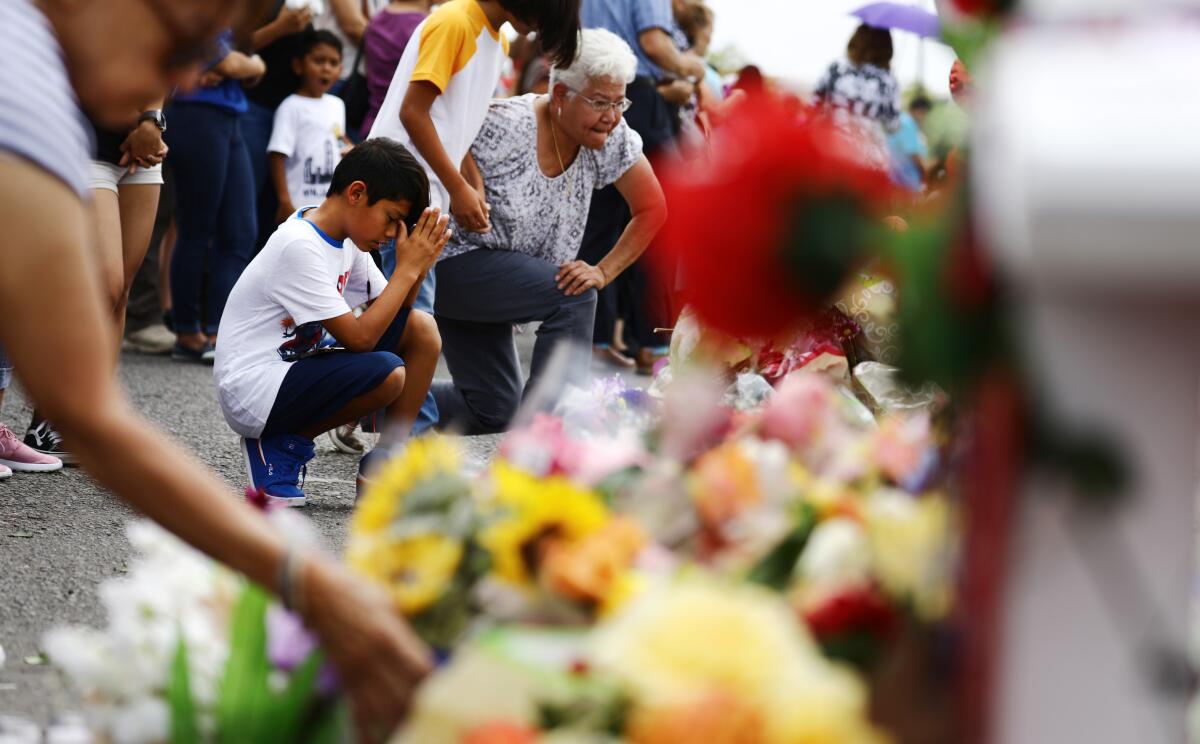
Far from joyful, this text thread was bone-chilling.
“Right away, people were saying, ‘Hey, everyone, check on your family como estan,’” said Alvarez, who works as manager for a mortgage company. “‘Call your cousins, your tías. See who needs help.’
“It’s been a big, emotional ride for us,” the 36-year-old added. “Everyone back home is very angry and sad. Out here, we’re just devastated.”
Nationwide, Latinos are expressing grief and anger over the massacre, which law enforcement officials are investigating as a hate crime because the alleged gunman published an online manifesto railing against a “Hispanic invasion” of Texas. The tragedy resonates deeply in Southern California, where a large El Paso community has played an outsized role in Mexican American life for over a century.
Naturalization records on file at the Riverside Federal Records Center in Perris show that nearly 60% of Mexican immigrants who settled in Los Angeles from 1900 to 1945 entered the U.S. through the El Paso port of entry. In the early days, laborers and families followed the Southern Pacific Railroad from the border crossing with Ciudad Juarez all the way to Union Station. With the construction of Interstate 10 in the 1950s, hundreds of thousands of Mexican Angelenos have returned to their home states and back along that route ever since.
The number of people in Southern California with roots in the border town is unknown, but there are enough former residents that alumni from El Paso’s Bowie High School — which stands100 yards from the Rio Grande in a neighborhood that was part of Mexico as recently as 1964 — have held reunions here for decades. El Paso-Los Angeles Limousine Express, a charter bus company started in 1966 that’s known to fans as los limousines, runs three daily overnight routes between the two cities.
“Anytime I tell people in L.A. I’m from El Paso,” said Gabriel Tenorio, a 46-year-old guitar string maker from Boyle Heights, “people’s reaction is usually, ‘Oh, you too? Oh, my God, what high school?’”
Mario T. Garcia, a professor of Chicano studies at UC Santa Barbara, has lived in Southern California since 1969 and written multiple books and essays about the diaspora. He describes his hometown as the “funnel of where Mexican immigrants started to come to L.A.”
Garcia says El Paso is more than just a station on the road to someplace better. He compares the influence that transplants have had in Southern California Mexican American life to how Midwesterners defined the economic, political and cultural mores of L.A through the 20th century.
Angelenos of note with roots in El Paso have included journalists (former Los Angeles Times columnist Rubén Salazar and the late Raul Ruiz), labor leaders (Bert Corona), Hollywood stars (Lupe Ontiveros), and longtime politico Richard Alatorre. Pioneering LGBTQ author John Rechy was born in El Paso and blossomed in L.A.; so did UCLA School of Medicine professor Cynthia Telles, the daughter of a former El Paso mayor, who has sat on the board of Kaiser Permanente for over a decade.
The zoot suit-sporting pachucos of Chicano lore originated in El Paso. Even the distinctive accent and argot of East Los Angeles has roots there, according to ethnolinguists.
“Mexican Americans [from El Paso] grew up with a certain confidence of our ethnic identity,” borne from the city’s long history of binational activism and majority-minority demographics, Garcia said. That translated into an “ethnic pride and strong leadership” that influenced the early days of Latino politics in Los Angeles, and which eventually transformed into today’s political machine.
“Back in El Paso, all the streets echo our names,” said Tenorio. “You grow up with a sense of awareness that we own the Southwest a bit, that we Mexicans are not a stranger here. I didn’t realize I was on the outside until I was older in L.A.”
While the connections between El Paso and Los Angeles run deep, that hasn’t always translated into a rosy relationship.
“We’re a brain-drain city,” Alvarez said of El Paso. “Those back home always ask, ‘¿Te fuiste a Austin?” [You went off to Austin?], or ‘¿Te fuiste a L.A.?’ And they don’t really like it.”
Texas State District Judge Francisco X. Dominguez, remembers how people who moved out to Southern California inevitably treated those who remained in El Paso as “country cousins”; paseños, he said, regarded those who left as “sort of Mexican-lite. Our Spanish was better, our familiarity with traditions was better.”
“Back in El Paso, all the streets echo our names.”
— El Paso transplant Gabriel Tenorio, 46, of Boyle Heights
But that familial beef never stopped what he describes as the “great foreign exchange program” of Angelenos and chuqueños sending their children to summer in each other’s cities with relatives to keep those ties alive.
The roots remain strong enough so that when Elvia Rubalcava recently needed to find help to resettle her ailing father in his native El Paso, she first asked friends in Los Angeles before family in Texas. “They immediately connected me to lawyers, doctors, whatever I needed,” said the 42-year-old playwright.
Rubalcava’s family moved to Santa Ana in 1975, where the only other Mexican family on their block was also from El Paso. Though she has lived her entire life in Orange County, Rubalcava still proudly considers Chuco her second home.
She has fond memories of the shopping plaza where the massacre happened; her grandparents’ house stands two miles away.
“I’ve been trying to keep it together,” she said. “Coming off the plane in the airport, there’s signs everywhere that say El Paso is the safest city in the U.S.” She repeats the phrase and stays quiet. “There’s so many people here in SoCal that have great memories in El Paso, and this massacre shows that nowhere is safe.”
“It’s our Macondo,” Tenorio said, referring to the fictional town where Gabriel Garcia Márquez set many of his stories — a mythical, bucolic place of longing and memories. “That’s were you went to be enjoy a calm life. And now, I can’t give that to my sons and daughters.”
More to Read
Sign up for Essential California
The most important California stories and recommendations in your inbox every morning.
You may occasionally receive promotional content from the Los Angeles Times.
